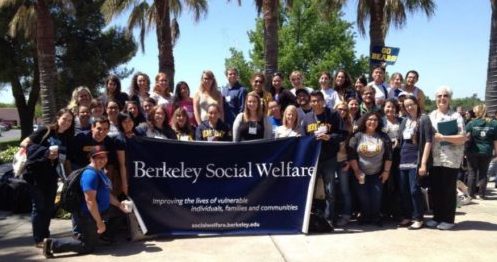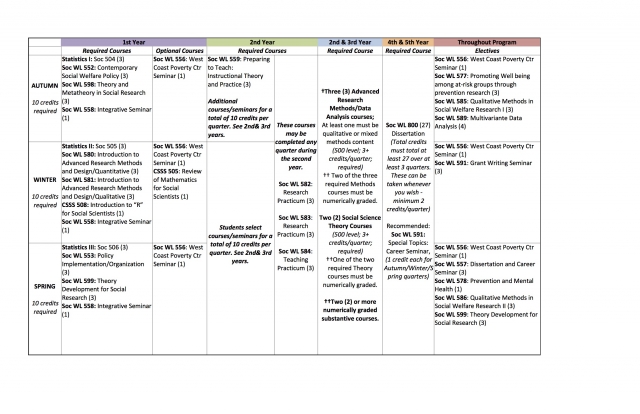Verify originality of an essay
Get ideas for your paper
Cite sources with ease

Social Work Research Topics & Tips on Finding and Distinguishing Good Ones
Updated 01 Jul 2024

Social work research is the systematic investigation of problems pertaining to the social work field. Alternatively, it can be defined as the application of research methods for addressing/solving problems confronted by social workers in their practice.
Major research areas include studying concepts, theories, principles, underlying methods, employees’ skills and their interaction with individuals and groups as well as internal processes, functioning principles within social entities. For a more specific selection of social work research topics, go to the appropriate section within this article.
Social work is ultimately focused on practical application, hence, the ultimate goal of social work research is understanding the efficacy of various intervention methods aimed at alleviating the conditions of people suffering from social deprivation – this highlights the importance presented by both the field and its associated research. For such difficult topics, you may ask yourself "can I pay someone to write my research paper " - and our professional team is here to help you.
Signs of Good Research Topics
Of all social work research questions, how could one distinguish the ones holding the greatest value or potential? Considering these signs could increase the chances of picking higher quality or more productive social work topics:
- Chosen topics are backed up by one or more published studies by research teams from the US or from abroad with solid article-related citation metrics, typically published in prestigious peer-reviewed academic journals (journals with high impact factor).
- Social work research topics in question are related to practice – theoretical research is very important, but nothing beats practical knowledge and efficient practical intervention methods and strategies. However, this aspect might depend on other circumstances as well (for students, for instance, theoretical topics are fairly acceptable). To ensure a successful research proposal in the field of social work, consider utilizing research proposal writing services .
- Social work research topics are breaking certain stereotypes. People are inclined towards topics that break preconceived notions – such topics naturally receive greater attention. If they bring solid evidence and reasonable arguments while providing/promising real benefits, such topics can simply revolutionize the field.
- Chosen social work research topics match current trends. Don’t understand us wrong – not everything that is trendy deserves attention (many things are overhyped). However, trends do have a sound reason for emerging (there is normally value behind the forces driving them). Moreover, delving into a field/topic that has only been recently established often gives significant advantages (career-wise). So watch out for trends in your research field closely, but always scrutinize them for what they are worth.
Get your paper in 3 hours!
- Customized writing: 100% original, personalized content.
- Expert editing: polished, standout work.
✔️ Zero AI. Guaranteed Turnitin success.

Where Can You Find Perfect Topics?
When exploring education research topics or searching for social worker research topics, it might prove useful to follow a few proven strategies (which are equally valid for many other occasions):
- Skim through your study literature (e.g. handbooks, course notes) – this is material you already studied, but going through it might help you to systematically visualize all studied topics or subtopics (these can suggest new ideas).
- Brainstorming. Access your knowledge base – chances are you have a few interesting topics stored in mind that you’d like to explore in greater detail.
- Browse through published article titles in social work journals or, even better, study newsletters/highlights on journal websites. Alternatively, one could search on platforms aggregating field-related news from multiple journals.– while some articles/topics might be overly complicated or specific, these still offer an immense choice.
- Browse online for ready research topics for a custom research paper from our research paper writing service – skimming through such lists would bombard you with topics of appropriate complexity and scope /broadness or would inspire new related ideas (e.g. by combining elements from different topics).
Yet another way to pick a good topic is to get research paper writing help from our professional writers – they would manage all aspects, including that of choosing an original and solid topic (obviously, you might be willing to confirm it, before proceeding with your writing project).
Need more writing assistance?
Connect with our top writers and receive a paper sample on social work crafted to your needs.
100 Social Work Research Topics
Below is a comprehensive social work research topics list to help get you started with your project.
50 Controversial Research Topics
- Group therapy vs individual therapy for increasing autistic children adaptability
- Impact on parents having children with autism spectrum disorder.
- Role play vs group discussion efficiency in increasing knowledge regarding drug abuse among high-school students.
- Addressing the stigma associated with depression.
- Measures to counteract condemning stereotypes with regard to depression (explaining and highlighting the biological mechanisms underlying it)
- Identifying individuals with suicide predisposition serving in military units.
- Life events role in PTSD onset in veterans.
- Strategies to prevent PTSD onset in US army veterans.
- Social inclusion measures for war veterans.
- Most efficient strategies for suicide prevention in academic setting.
- Categories are most vulnerable to drug abuse.
- Most efficient educational measures to prevent future drug abuse in children
- Myths about substance abuse among adolescents.
- Family support importance for alcohol addicts rehabilitation.
- Workaholics – new type of addicts. Impact on personal and family lives.
- Mental retardation in Alzheimer’s disease – how to cope with it as a family member?
- Promoting integration for children with Down syndrome.
- General considerations for working with children with developmental disabilities.
- Educating society with regard to dyslexic children (all target groups could be considered: parents, classmates, teachers, etc.)
- Dyslexia cases combined with ADHD – how to approach it?
- Dismounting common myths about dyslexia.
- Counteracting bullying aimed at dyslexic children.
- Early intervention benefits to address language difficulties in case of dyslexic children.
- What role should educators, parents, schools, mental health centers, private practice have in addressing dyslexia?
- Key prerequisites for building resilience to adverse life events in children
- Strategies for building resilience in welfare workers.
- Who is responsible for developing resilience in social workers?
- Self-help guidelines for social workers to become resilient.
- Most common problems encountered by LGBT youth in US schools.
- Arming LGBT individuals with coping strategies to face discrimination.
- The situation with juvenile delinquents across various US states.
- Rationale behind separating juvenile delinquents from adult delinquents.
- Factors contributing to high youth incarceration rate in certain US states (Wyoming, Nebraska, South Dakota).
- Most efficient reeducation strategies for juvenile delinquents.
- Society inclusion measures for people that served in prison.
- Coping with the stigma of having served in prison.
- Attitudes of welfare workers towards incarcerated individuals.
- Attitudes of correctional officers towards mental health of incarcerated individuals.
- Gender differences relevance when working with incarcerated people.
- Factors increasing the risk of recidivism in released prisoners.
- Incarceration impacts on parent-child relationships.
- Incarceration effects on mental health.
- Social inclusion role and family support in preventing recidivism by former prisoners.
- Circumstances associated with the highest risk of becoming a human trafficking victim.
- Ethical rules important when working with human trafficking victims.
- Trauma characteristic depiction for human trafficking victims.
- What is considered neglecting a child in child welfare?
- Prerequisites of a safe childhood and a functional family.
- Dealing with child abuse in orphanages.
- Types of child maltreatment/abuse.
50 Hot Research Topics for Social Work Students
- Difference in approaching children vs adolescents suffering from domestic violence.
- Success stories in preventing child abuse in certain regions/states.
- Strategies to encourage women to report domestic violence cases.
- Damage to families with ongoing domestic violence.
- Healing steps for victims of domestic violence.
- Effects of child neglect on later academic performance and career.
- Removing a child from a setting – when is it justified?
- Guidelines on providing testimony in court as a social worker
- Peculiarities of social work in health care assistance.
- Grief counseling for families that lost a loved one.
- Understanding the symptoms of grief.
- Risk factors for dangerous grief.
- Conduct/communication rules with persons in grief.
- Types of elder abuse. Which are the most common ones?
- Predictors of elder abuse (related to relationships within families, financial, status).
- The integrative concept of human services.
- The utility of mentoring programs in social care.
- Work with elders experiencing cognitive impairment.
- Peculiarities of working with immigrants in social care.
- Considerations for working with HIV positive people.
- Social research topics about homeless people.
- Primary factors contributing to homelessness.
- Challenges faced by social care assistants in working with sexually exploited clients belonging to the opposite gender.
- Meeting unique needs of sexually exploited children.
- Compassion fatigue experienced by welfare worker.
- Challenges experienced by single parents and support strategies
- Problem of getting medical help when belonging to vulnerable categories
- Is there place for spirituality in welfare worker?
- Religious beliefs obstructing welfare worker.
- Support strategies for low-income families having children with impaired development.
- Retrospective views and youth opinions on foster care facilities they have gone through.
- Key wishes/demands expressed by foster care facility residents
- Strategies employed by welfare worker to avoid burnout.
- Importance of building emotional intelligence as welfare worker.
- Discussing sexual health with mentally ill or retarded clients.
- Spirituality and faith as an essential element in many addiction rehabilitation programs.
- Attitude towards older people among welfare workers.
- Factors responsible for reluctance to benefit from mental health services among certain population groups.
- Differences in working with adolescent and adult drug abusers.
- Factors affecting foster youth that impact their higher education retention rate.
- Language barrier as an obstructing factor for minorities in benefiting from mental health services.
- Cultural competence as social work research topic
- Pre and post birth assistance to surrogate mothers. Evaluating impact on mental health.
- Challenges and issues arising in families with adoptive children.
- Play therapy interventions effectiveness in school-based counseling.
- Mental health in hemodialysis patients and corresponding support strategies.
- Importance presented by recreational activities for patients with Alzheimer’s.
- Intimacy impact on the outcome of group therapy practices for alcohol addiction.
- Mental health care outcomes in pedophilia victims.
- Alternative practices in social work.
Read also: Get excellent grades with the help of online research paper maker.
Found Topic But No Time For Writing?
We truly hope that by providing this list of social work topics for research papers we’ve addressed an important challenge many students encounter. Nevertheless, choosing suitable social work research topics is not the only challenge when having to write a paper.
Fortunately, Edubirdie website has a number of other tools like a thesis statement generator, a citation tool, a plagiarism checker, etc. to help with related aspects of writing a research paper. Besides, you can directly hire our professional paper writers to assist you with writing the paper according to instructions, creating a detailed outline, an annotated bibliography, but also with editing, proofreading, creating slides for presentation, etc.
Clients can choose their preferred writers freely by evaluating their ranking and performance on the platform. Later, they can communicate with these writers as their projects progress, being able to request intermediary results and providing feedback, additional guiding. If results are not satisfying and don’t match provided instructions, you can request unlimited revisions – all for free. In the unlikely situation in which revision attempts fail, you are guaranteed to get your money back. Given these low risks and guaranteed outcome, you should definitely give it a try!
Was this helpful?
Thanks for your feedback, related blog posts, how to craft research objectives: guidelines & tips.
In the ever-evolving landscape of academic study, having clear and well-defined research objectives is crucial for the success of any work. Study a...
Delimitations in research: meaning, types, and examples
Working on academic papers can make it easy to feel overwhelmed by the huge amount of available data and information. One of the most crucial consi...
Discover how to compose acknowledgements in research paper
This post will help you learn about the use of acknowledgements in research paper and determine how they are composed and why they must be present ...
Join our 150K of happy users
- Get original papers written according to your instructions
- Save time for what matters most

PhD in Social Work Degree Guide | Salary & Programs 2024
A PhD in Social Work is a mark of distinction as an expert in the discipline. Graduates of social work PhD programs often use their knowledge and training to conduct groundbreaking research on critical issues facing society. Their discoveries shape policy and assist countless people. As respected leaders, they hold top positions at various social services organizations. As professors, they mold new generations of social workers.
In addition to increased ability to help others, PhDs in social work can expect something else following graduation – good job prospects. The U.S. Bureau of Labor Statistics (BLS) projects employment in the community and social service occupations to grow a hearty 12% between 2020 to 2030. 1
What is a PhD in Social Work?
A PhD in Social Work is a Doctor of Philosophy in Social Work. It is one of the two highest degrees that someone can earn in the field, the other being a DSW (Doctor of Social Work). PhD programs in social work focus heavily on research methods and pedagogy. DSW programs emphasize advanced training for practicing social workers.
Outstanding Schools with PhD in Social Work Degrees in U.S.
The road to a PhD in Social Work begins with admittance to a school that meets an aspiring student’s needs. While the “perfect” school varies by an individual’s interests and circumstances, here’s a sample of some noteworthy institutions:
- University of Southern California – Through its Suzanne Dworak-Peck School of Social Work, USC offers a PhD program that prides itself on promoting independent inquiry. Students gain competence in research methodology and communicating results. They learn skills vital to their future, such as how to submit grant proposals, how to write articles for publication, and how to present findings at conferences.
- New York University – From day one, each PhD student in NYU’s Silver School of Social Work gets paired with a faculty mentor who helps develop research, scholarships, and teaching skills. Areas of staff expertise include racial and social justice, behavioral health services, child welfare, and aging. The school’s location in New York City provides a dynamic, diverse setting for studying important social work issues.
- Wayne State University – Opportunities for professional and intellectual growth abound in the PhD program at this public institution in Michigan. The school encourages students to take coursework outside of the School of Social Work to support their individual interests. This interdisciplinary approach can lead to special degrees in areas such as infant mental health, gerontology, or social work and anthropology.
- Baylor University – No need to live in Waco, Texas, to attend this institution. After a required five-day session on campus, social work PhD students can live elsewhere while pursuing their degree through an online classroom. Online PhD in Social Work courses meet via videoconferencing at specific times each week. The program focuses on the integration of religion and faith with practices of the social work profession. Graduates leave ready to address complex social issues as leaders, educators, and researchers.
- The University of Utah – Other than a week on campus at the start of each semester, this institution’s “distance-delivered doctoral program” allows students to pursue an online PhD in Social Work from any location. Individuals attend classes remotely at the same time as their on-campus cohorts. All students possess equal access to research opportunities and financial support.
If you’re looking for other schools that offer PhD’s in social work, check out the Find Your Perfect “U” tool. You can search over 6,000 colleges and universities with 11 different filters to find the perfect school for you !
What Can I Do with a PhD in Social Work?
Many who pursue a PhD in Social Work do so in hopes of securing a faculty position at a university or junior college. They wish to continue conducting research in their area of interest within the field or teach up-and-coming social work students. Others may find employment at think tanks, non-profits, or governmental agencies.
PhD in Social Work Salary and Career Outlook
The U.S. Department of Labor includes postsecondary social work teachers on its list of Bright Outlook Occupations because of the job’s rapid growth prospects (9%) over the next decade (2020-2030). 9 Projections are not a guarantee, but the information is encouraging to PhDs looking to go in that direction.
While the mean annual wage for social work professors is $71,570, possibilities exist to earn substantially more. In California, for instance, the mean annual wage stands at $110,020. New York, the state with the highest concentration of postsecondary social work teachers, posts a mean annual wage of $91,680. 7
Some PhDs find employment as social service consultants. They train social service staff members and help organizations implement improvements in procedures and policies. According to PayScale, this type of position brings in an average hourly rate of $32.50. 8
PhD in Social Work Career Paths
Students in PhD programs usually enter possessing an MSW (Master’s of Social Work) and a social work license. After earning their doctorate, some individuals decide to return to careers in applied social work rather than enter academia. Their increased knowledge and training oftentimes set them up for higher-level positions in occupations such as:
- Median Salary: $51,760
- Career Outlook: +12% (2020-2030)
Social workers identify and assist individuals, families, and groups within a community that need help with various life challenges.
- Median Salary: $48,140
- Career Outlook: 17% (2020-2030)
These professionals promote wellness and serve as a liaison between individuals/groups and health care systems.
- Median Salary: $58,120
- Career Outlook: +11% (2020-2030)
These counselors help individuals with social and academic issues in order to succeed in school and forge an employment plan.
Source: BLS
Earning a PhD in Social Work
Individuals generally go into social work because they want to make a difference in the lives of others . Earning a PhD in Social Work certainly advances that objective. The decision to undertake something so rigorous, however, should not be made lightly.
Pros and Cons of PhD in Social Work Degrees
Completing a PhD program in social work takes time, money, and effort. Only you can decide if such an endeavor is in your best interest.
- Expanded job opportunities, especially in academia, consulting, and research
- Recognition as an expert in the field
- Good job growth predictions from the BLS
- The potential for increases in income, responsibility, and influence
- A chance to study specific areas of interest and learn advanced knowledge about them
- The cost of pursuing a degree
- The stress of staying on track and finishing this academic challenge
- Taking away time from other endeavors in order to focus on studies
- Possibly moving to a new location to be closer to campus
PhD in Social Work Program Prerequisites
Most students enter social work PhD programs already possessing an MSW and a history of social work employment. People with a background in a similar field , such as psychology, may also be eligible for consideration. Some institutions conduct dual-degree programs where participants earn both an MSW and a PhD upon completion of studies.
Courses in PhD in Social Work Programs
While specific courses vary by program, the following are some of the courses frequently encountered in social work PhD programs:
- Quantitative research
- Qualitative research
- Data analysis
- Social policy analysis
- Scholarly writing
- Grant writing
- Teaching and pedagogy
Coursework helps students prepare for two important components of a social work PhD program: the qualifying exam and the dissertation .
Passing an oral and/or written qualifying exam demonstrates a solid base of knowledge and readiness to engage in independent research. The dissertation focuses on a topic or research question of the student’s choice. In addition to writing the dissertation, the student must orally defend the ideas presented at a meeting with other scholars.
Skills Learned in a PhD in Social Work Degree Program
PhD programs promote scholarly development. Students hone their critical-thinking skills. They learn how to ask important questions about social work issues and how to go about seeking possible answers. They graduate knowing how to construct research studies and evaluate results.
How Long Does It Take to Get a PhD in Social Work?
Programs generally require 36 credit hours. In terms of time, this translates to 3-5 years.
Students pursuing accelerated studies may be able to shave off time from this range. On the flipside, students enrolled in a dual MSW/PhD program take longer to finish because they need to fulfill more requirements.
A substantial determinant of program length is progress on one’s dissertation. Some students develop a clear idea early on of what they wish to focus on and make steady progress toward completion. Others require more time to figure out what they want to do and how to do it.
Social Work Degree Specializations
Social work is a large discipline with many niches. Some areas PhD candidates may concentrate on include:
- Mental health
- Substance abuse
- School social work
- Military social work
- Children and families
- Gerontology
- Terminal illness
- Migration studies
- Disaster relief
- LGBTQIA+ community
- Public welfare
- Justice and corrections
Social Work Certification and Licensure
Many social work positions require a license and/or certification. People should look into the requirements for jobs of interest as well as for the geographical region in which they seek employment. A good place to start is the Association for Social Work Boards .
Accreditation
Selecting a school with regional accreditation ensures the institution has met certain educational standards. Choose one approved by the U.S. Department of Education or the nonprofit Council for Higher Education Accreditation (CHEA).
While the Council on Social Work Education (CSWE) accredits BSW and MSW programs, it does not do so at the doctoral level. However, the Group for the Advancement of Doctoral Education in Social Work (GADE) can provide prospective social work PhD students with information on its member schools.
Online PhD Social Work Programs
Opportunities exist to pursue doctoral studies in social work online. The majority of such programs lead to a DSW, but some result in a PhD.
Online vs. On Campus Degrees
Earning an online PhD in Social Work degree through has a variety of potential benefits.
- Remote learning removes geographical barriers.
- Students gain greater choice in selecting an institution
- Students do not need to upend their lives to move to campus housing.
- Online programs generally offer more flexibility in terms of when and where work gets completed.
- Sometimes, ambitious students can accelerate their progress.
Some students prefer regular, campus-based programs. They enjoy the social aspect of physically attending class alongside others, focus better in an academic environment, or prefer a consistent schedule.
How Long Do Online Courses Take to Complete?
Finishing an online PhD in Social Work program generally takes about the same amount of time as on-campus studies, which is 3-5 years. Choosing an accelerated program can reduce some of that time.
Schools offering online PhD in social work programs tend to have a hybrid set-up. They require brief periods of time on campus, such as the first week of each semester.
Also, remote PhD programs in social work tend to favor synchronous learning. Off-campus students use video technology to attend classes with their on-campus peers on specific days at set times.
Applying to PhD in Social Work Programs
Students interested in obtaining a PhD in Social Work must apply to individual schools offering this graduate study. Due to substantial competition for spots, students oftentimes apply to more than one program.
Admission Requirements for PhD in Social Work Programs
Each school has its own specific set of criteria for applicants to present in order to receive consideration for admission. Things often required include:
- A master’s degree from a program accredited by the Council on Social Work Education
- Transcripts of all collegiate work, including degree(s) earned and GPA
- A resume of hands-on social work experience, including internships, employment, and volunteer experiences
- Satisfactory performance on the Graduate Record Examination (GRE)
- Personal statements/essays on the reason for pursuing a PhD
- Interviews with faculty members
- Letters of recommendation supporting the candidacy
- A scholarly writing sample
Paying for a PhD in Social Work
Students rightly worry about paying for higher education. Fortunately, a good number of options exist to finance graduate studies , including grants, loans, and scholarships. Schools also often offer PhD candidates positions as research or teaching assistants, which can cover or reduce tuition and even provide a stipend.
PhD in Social Work Degree Costs
Many factors influence the cost of pursuing a PhD in Social Work. Choosing a public school in one’s state often proves more economical than tuition for private institutions. Programs partially or fully online can lower expenses by eliminating the cost of traveling to campus or residing in campus housing.
Any student looking for financial assistance should fill out the Free Application for Federal Student Aid (FAFSA) . It serves as the first step in determining eligibility for grants, loans, and school-specific monetary aid.
Scholarships for PhD in Social Work Students
Individuals looking for assistance in funding their PhD studies in social work may want to check out the following:
- Council on Social Work Education – The CSWE offers a variety of general and niche scholarships for students interested in graduate studies in social work.
- National Association of Social Workers – Doctoral students qualify for several funding opportunities offered by the NASW Foundation.
- Davis-Putter Scholarship Fund – Students working for social change can apply for one of these need-based scholarships of up to $15,000 per year.
PhD in Social Work Career Resources
Along their educational journey and into their career, social work PhDs may find the following groups good sources of knowledge and support:
- Council on Social Work Education – This national organization is dedicated to advancing excellence in social work education and research. PhD candidates may find the careers section on the group’s website particularly interesting. It contains job opportunities, career planning advice, and free resume review.
- The Group for the Advancement of Doctoral Education in Social Work – This organization provides a wealth of information on what makes a good PhD program. Its website includes links to all its member institutions, which proves helpful to students trying to compare schools.
- National Association of Social Workers – This well-established organization of professional social workers focuses on career development and advancing social policies. Its website contains resources on a variety of topics by interest, such as aging, child welfare, and LGBTQ issues. Networking opportunities and tips for landing a job prove useful to graduate students.
- Clinical Social Work Association – This group focuses on meeting the practice needs of clinical social workers through support and advocacy. Members receive free consultative services for legal and ethical questions, reduced rates on liability insurance, and access to the association’s job board.
- Society for Social Work and Research – For more than 25 years, this non-profit has supported faculty, students, and others interested in social work research. Funding, information sharing, and interdisciplinary networking are among its areas of concern.
- People often pursue a PhD in Social Work to become a professor at a university, college, or junior college. Such a job involves teaching classes, managing internships and other hands-on student experiences, and conducting research. Other PhDs work for the government, military, non-profits, think tanks, schools, and other organizations as social workers, community managers, researchers, and policy shapers.
- The answer depends on individual interests and career objectives. For someone hoping for a job in academia, a PhD is usually necessary. Individuals interested in positions such as social worker or community service manager oftentimes get hired with a lesser degree. A doctorate, though, can put someone in a better position for greater responsibility, leadership, decision-making, and pay.
- Examine your career goals. A bachelor’s degree can be enough for entry-level positions. A master’s will qualify you to perform more extensive duties and is a must for those interested in clinical social work. Future social work instructors and social work executives generally hold a doctorate, which can be a PhD in Social Work or a DSW (Doctor of Social Work).
- An MSW (Master of Social Work) helps individuals secure higher-level positions within the field of social work. Obtaining one signifies greater education and training than just a bachelor’s degree. A PhD in Social Work demonstrates exceptional knowledge and commitment. PhDs often remain in academia to teach others and to continue advancing the discipline through original research.
Get all the Universities.com's college news, advice, updates, financial aid, and more straight to your inbox.
- https://www.bls.gov/ooh/community-and-social-service/home.htm
- https://dworakpeck.usc.edu/academics/phd-program
- https://socialwork.nyu.edu/a-silver-education/degree-programs/phd.html
- https://socialwork.wayne.edu/phd
- https://www.baylor.edu/social_work/index.php?id=866760
- https://socialwork.utah.edu/phd/
- https://www.bls.gov/oes/2018/may/oes251113.htm
- https://www.payscale.com/research/US/Job=Social_Service_Consultant/Hourly_Rate?loggedIn
- https://www.onetonline.org/find/bright?b=1&g=Go
Our websites may use cookies to personalize and enhance your experience. By continuing without changing your cookie settings, you agree to this collection. For more information, please see our University Websites Privacy Notice .

Ph.D. Program
For more than two decades, our doctoral program has prepared students to become independent researchers and to train the next generation of social work practitioners.
Through rigorous training in different methodologies, our students acquire a range of research skills and develop the capacity for original scholarship. After two years of coursework, students pursue their own interests as they complete their dissertations.
The program is open only to full-time students.
Message from the Ph.D. Director
Program Requirements
Plan of study.
Students complete a total of 56 graduate credits. Eleven core courses in social work provide students with competency in:
- Advanced research methods
- Social science theories
- Social welfare history
- Policy analysis
- Theories of teaching and learning
Students also complete two electives and 15 credits of dissertation research.
A sequence of required courses is illustrated below. The sequence will vary depending on your year of enrollment. Students complete 20 credits in their first year and 18 credits during the second year, including 6 credits of electives. Students will also take one course in the Fall semester of their third year.
Following completion of coursework and defense of the dissertation proposal, students must complete a minimum of 15 credits of dissertation research as they engage in their independent dissertation research.
View course descriptions in the Graduate Course Catalog.
- SSW 6410: Research I: Research Design and Knowledge Generation – 3 credits
- SSW 6412: Research III: Multivariate Statistics I – 4 credits
- SSW 6425: Social Welfare Policy Seminar - 3 credits
- Professional Seminar
- SSW 6413: Research IV: Multivariate Statistics II – 4 credits
- SSW 6415: Topics in Advanced Social Work Research - 3 credits
- SSW 6445: Social and Behavioral Science: The Knowledge Base for Practice with Large Target Systems (Macro Practice) – 3 credits
- SSW 6411: Research II: Survey Research Methods – 3 credits
- SSW 6420: Critical Analysis of Historical and Philosophical Themes of the Profession – 3 credits
- Elective – 3 credits
- SSW 6414: Research V: Qualitative Research Methods – 3 credits
- SSW 6435: Social and Behavioral Science: The Knowledge Base for Micro Social Work Practice with Smaller Target Systems (Individuals, Families, Groups) – 3 credits
- Elective - 3 credits
- SSW 6460: Teaching and Learning in Social Work Education: Roles and Contexts - 3 credits
Program Requirements and Timeline
During the second year of study:
- Indication by student of preferred Major Advisor
By the end of the second year of study:
- Formation of Advisory Committee
Before completing no more than 12 credits of coursework toward your degree:
- Submission of Plan of Study
No later than four years after beginning doctoral study and at least eight months prior to completion of all degree requirements:
- Passing of General Examination
At least six months prior to degree completion:
- Submission of Dissertation Proposal to Advisory Committee
No later than eight years after beginning doctoral study:
- Passing of Dissertation Defense

50 Best Social Work PhD Programs

To help further narrow your search, we have compiled a list of the 50 best programs in the country based on two primary criteria: overall academic reputation (65%) and quality of financial aid provided to students (35%). Programs on this list have a focus on research and teaching and, unless noted, do not focus on advanced clinical practice, as the DSW degree does. Many of the schools listed here also offer joint MSW/PhD programs for those looking for to complete the entirety of their graduate work in one location.
#1 University of Michigan

Image Source
U-M’s School of Social Work has been among the country’s best for quite awhile now. Michigan offers a unique joint PhD program for social work students, partnering with five other graduate programs on campus. Students choose from one of U-M’s other well-regarded fields including Anthropology, Economics, Political Science, Psychology, and Sociology. Joint PhD students reflect the populations they serve and address society’s challenging issues through scientifically rigorous social and behavioral research. U-M faculty create a robust interdisciplinary culture and formulate solutions to serious worldwide problems. Together, Joint PhD students mentored by faculty tackle society’s most pressing problems- poverty, homelessness, mental illness, violence towards children and addiction to name a few. U-M faculty empower students to extend their reach, deepen their impact and create real social change.
Like other programs at the top of our ranking, The Joint Program in Social Work and Social Science provides all incoming doctoral students with a multi-year funding package. U-M combines fellowship awards, graduate student research assistant positions, and graduate student instructorships to offer most students five years of full funding, which includes tuition, stipends, and health care. U-M ranks first in research-and-development spending among the nation’s public universities. Its institutes and centers include: The Institute for Social Research; National Poverty Center; Institute for Research on Women and Gender; Curtis Center; Nonprofit and Public Management Center; University of Michigan Substance Abuse Research Center; and the Michigan Institute for Clinical and Health Research.
Program Website Offers combined Masters/PhD? Yes Offers part-time option? No
#2 University of Chicago

The University of Chicago is a magnet for the world’s leading scholars in the social sciences. Its School of Social Service Administration consistently ranks among the best social work institutions in the country. Members of the SSA doctoral program join a select group of students and scholars who advance an interdisciplinary approach to social work and social welfare scholarship. The program is designed to deepen students’ mastery of both social science theory and research methods so that they are prepared to contribute to scholarly knowledge in innovative ways. The PhD in social work opens doors to university-level research and teaching positions and high-level policy research. In the doctoral program, students have the flexibility of designing their own course of study in tandem with related disciplines across the university. SSA students receive the theoretical training needed to become applied social scientists.
Doctoral students receive significant funding to ensure that they are able to immerse themselves in the program. Effective July 1, 2017, all admitted doctoral students are eligible to receive a scholarship that will cover all tuition and fees plus a $25,000 stipend for up to five years. To ensure that incoming students receive the in-depth advising they need to develop a customized program of study, the Doctoral Committee selects an advisor for each student during the admissions process, matching theoretical and substantive interests. SSA is one of few schools of social work with a full-time career services office. Doctoral students participate in original research alongside faculty advisors in University-affiliated research centers and programs, including: Center for Gender Studies; Center for Health Administration Studies; Center for Human Potential and Public Policy; Center for the Study of Race, Politics & Culture; Chicago Center for Youth Violence Prevention; Human Rights Program; and the Urban Health Initiative.
#3 Washington University (St. Louis, MO)

Another perennially top-ranked program, the Brown School at Washington University offers world-class graduate instruction in social work. The curriculum at the Brown School emphasizes substantive, theoretical and methodological preparation. Vital and groundbreaking research is being conducted at over a dozen Brown School research centers, and students have access to the scholars forging the future of their field. Wash-U’s faculty are top scholars and experts, and students receive the benefit of their mentorship and guidance. The director of the program serves as the primary faculty advisor of all incoming doctoral students. During orientation, students receive a tailored list of additional Brown School faculty who may serve as substantive advisor(s), those who share mutual areas of research interest. At the completion of the first year, students officially select an advisor to mentor them in their chosen area of research.
The Brown School is committed to providing their doctoral students full tuition scholarships, four-year stipends and professional development accounts. Additional funding is possible through research and teaching fellowships as well as other sources of internal and external support. The PhD curriculum includes three units each of required teaching and research practica. These practica typically occur after the first semester in the program and round out the individualized curriculum plan. Teaching practica ensure students are well-trained in substantive content and pedagogy as they prepare for independent teaching at the graduate level. Additional opportunities for research development are available within specific research fellowship programs, faculty laboratories and research centers. The program requires 72 units of credit, 21 of which can be transferred from an MSW program or a graduate degree from an allied field.
Program Website Offers combined Masters/PhD? No Offers part-time option? No
#4 University of Pittsburgh

The University of Pittsburgh has one of the oldest and most well respected social work doctoral programs in the United States. Since its inception, The School of Social Work has conferred the PhD degree on hundreds of graduates who enjoy productive careers in social work research, education, administration, and planning. The program provides students with a supportive educational environment which facilitates their progress towards degree completion. Pitt’s doctoral program is committed to the school’s mission which addresses human dignity, social justice, and social equity for diverse populations. The university awarded its first DSW degrees in 1949. In 1963, the DSW degree was changed to a PhD. The school celebrated the 60th Anniversary of its PhD Program in 2009. Pittsburgh’s program has consistently been regarded among the top 10 social work doctoral programs in the nation.
Accepted candidates are fully funded with tuition and stipend support for four years of study. Tuition support includes health insurance, and the school has a wonderful Social Work Library which is part of the University’s Library System. Doctoral education in Social Work prepares students for leadership roles in social work research, social work education, social policy, planning, and administration. The goal of the program is to provide students with advanced academic training that will allow them to contribute to the knowledge base of the social work profession. The doctoral program is open to applicants who have demonstrated intellectual capacity, critical thinking skills, and potential for research and scholarship. Pitt’s full time program is highly competitive and accepts 6-8 students each year.
#5 Case Western Reserve University

Founded in 1952 as one of the first doctoral programs in social welfare in America, the PhD program at the Mandel School is designed to develop leaders in social work research, policy, and teaching. It is a cornerstone of the school, offering doctoral students the opportunity to engage with world-renowned faculty, cutting-edge research, and a creative curriculum – all within a supportive environment committed to student success. In response to the different needs and interests of our students, the Mandel School offers two formats for professionals electing to pursue a PhD degree in social welfare: the full-time and the part-time format. Course content includes philosophy of science and theory building, theories of human behavior, advanced research design, statistics, measurement and data analysis, qualitative research models and methods, an integrated research seminar, social welfare policy, theory and evidence base of social work practice, and social work education.
Case Western offers full time students a 100% tuition waiver covering all coursework and six hours of dissertation research credits. Doctoral students may also be able to receive additional tuition waivers for dissertation research credits through serving as teaching assistants for doctoral methods courses or for serving as research assistants on faculty members’ funded research projects. Full time students are guaranteed a stipend of $18,000 for each of the first four years of doctoral study. This fellowship provides individualized training in social work research methods with a faculty member closely matched with the student’s research interests. Students can apply for a mentorship in research or in teaching. In response to the different needs and interests of our students, the Mandel School offers two formats for professionals electing to pursue a PhD degree in social welfare: the full-time and the part-time format.
Program Website Offers combined Masters/PhD? No Offers part-time option? Yes
#6 University of Washington (Seattle, WA)

The PhD Program in Social Welfare at Washington prepares students to become leaders in the advancement of knowledge in the profession and relevant interdisciplinary domains. Students acquire both the substantive and methodological competence to contribute theoretical formulations and empirical research that inform effective social work practice and advance scholarship in social welfare for the promotion of social justice. In addition to being among the top contributors to research and scholarship, the School’s faculty members have developed special depth in prevention research. Faculty research emphasizes prevention and intervention services and encompasses topics related to health/mental health promotion and disparities, aging, child and adolescent services, family-based practice, interpersonal violence, substance abuse, income distribution, and issues related to gender, communities of color (including American Indian and Alaska native health), and gays and lesbians.
We ensure the same level of support to all incoming students, and our admissions decisions are based in part on the number of students for whom we can ensure support during their first 3 years in the program. We work with students to seek sources of funding both within the University and from outside sources. The support typically involves teaching or research assistantships or fellowships for the 9-month regular school year and includes tuition waiver and health benefits in addition to a salary. The program offers excellent student resources such as access to cutting edge quantitative and qualitative methods training, preparation for teaching and related faculty roles, student travel to professional conferences, a high level of faculty research activity, scholars engaged in cross-cultural research, and excellent computer access and consultation.
#7 Boston College

Boston College School of Social Work is home to a highly productive community of scholars whose research advances the field of social welfare and the practice of social work. This unique curriculum will prepare students to excel as a researcher and teacher in leading academic and social welfare institutions worldwide. Students develop expertise in: A Substantive Area of Social Work providing the foundation for advanced research; A Social or Behavioral Science with theory and empirical findings of causes, dynamics, and outcomes of social work interventions; Research Methods necessary to effectively advance knowledge in the field; Teaching Methods to pass knowledge and skills to the next generation of scholars and practitioners; Communication Skills to impart the results of your scholarship, through writing and speaking, to the social work community.
All accepted doctoral students receive merit-based financial support. Students at the Boston College School of Social work receive a multi-year full tuition package worth more than $125,000. This fellowship also provides a living stipend. The award in the first year is a $20,000 non-service stipend. In the second and third years, the award is a $20,000 service stipend. In the fourth year, the award is a $20,000 non-service stipend. The curriculum is designed with a blend of quantitative research courses, combined with theory and methods classes plus a required teaching course. Students also gain practical skills by teaching and tutoring in an MSW classroom. The curriculum is designed to prepare students for the available tenure track positions and other professional research careers. The mission of the Boston College School of Social Work Doctoral Program is to prepare scholars committed to the pursuit of knowledge to advance the field of social welfare and social work practice.
#8 University of North Carolina

The Ph.D. Program in social work at the University of North Carolina at Chapel Hill is designed to produce graduates who are capable of building and testing explanatory and practice theory to guide social interventions in social work. It includes thorough training in research methodology and data analysis for addressing both basic and applied research questions. It is not designed to add to clinical or practice skills. Students define a specialized area of study that focuses their assignments and guides their research experiences. It is anticipated that graduates will pursue careers involving scholarly activity and basic and applied research in either academic, research, or policy settings. Through innovative research that improves practice and enhances education, students at UNC search for solutions to the challenges of poverty, mental health, violence, and substance abuse.
The doctoral program of the University of North Carolina-Chapel Hill provides significant funding to doctoral students, including up to four years of tuition, health insurance, as well as teaching and research stipends. In addition, all doctoral applicants are considered for university-wide fellowship support. There are several kind of assistantships: Merit Assistantships, which come through the university; research assistantships in which the student works for pay on a grant or contract; and research assistantships and teaching, paid from school or program funds, for example, from endowed funds. Students may receive funding from more than one source. The School has grown to include 27 tenured and tenure-track faculty members – seven of whom are chaired or distinguished professors – and more than 65 clinical and research faculty members. In 2011, social work faculty received more than $12 million in grant funding.
#9 Boston University

Building upon BU School of Social Work’s robust commitment to social justice and empowerment of historically marginalized populations, the doctoral program provides training in the theory, research methods, and values of the social work profession necessary to solve urgent human and societal problems. Students’ work reflects the interdisciplinary nature of the program and individualized course of study. Students develop core competencies that are integral to contemporary social work practice, teaching, and research. The critical linkages between social work and social science research, theory, and practice build upon faculty strengths and expertise, and grow through interdisciplinary collaborations and expertise in areas such as health, mental health, trauma, addictions, child welfare, and aging. The PhD in Social Work program offers an opportunity for students to work with, and learn from, these leaders and to pursue a multi-method and highly individualized course of study.
BU is pleased to offer a generous multi-year funding package of up to five years, which includes tuition, paid stipends, and health care. PhD students are funded through a combination of tuition scholarships, and research and teaching assistantships. While students gain hands-on research and teaching experience, assistantships supported by the School of Social Work are paid as stipends during the eight-month academic year. The core curriculum requires a mixed methods foundation, grounding in social work values and a social justice lens, and training in teaching excellence. Student knowledge is deepened through hands-on teaching-practicum experience, the development of a specialization area, and mentored research training. These integrated experiences provide a rich educational foundation for social work leadership in academic, policy, research, and practice arenas.
#10 University of Pennsylvania

The University of Pennsylvania PhD program in Social Welfare is designed to develop leaders in academia and research to identify both problems and potential solutions. Faculty work hard to foster scholarly energy, collaboration, and creativity. Most graduates go on to faculty posts in Schools of Social Work and Social Welfare. According to the U.S. Bureau of Labor Statistics, “employment of social workers is expected to grow by 19 percent from 2012 to 2022, faster than the average for all occupations.” As a growing academic field, multiple job offers are common. In order to apply for a dual degree program (including the MSW/PhD program), applicants must submit two separate applications. Each of these applications must include two sets of supporting documents, including transcripts, personal statements, and 3 letters of recommendation. Applications for each dual degree program will be reviewed independently of each other; it is possible to be admitted into one program and not the other.
The program is designed to be completed in four years. Each student is supported financially by the School of Social Policy & Practice in the form of tuition, fees, individual health insurance, and a nine-month research and teaching stipend for the four years. Graduates also are prepared to assume, as some have, positions in government, international organizations, research firms, and think tanks. The program is structured so that students can earn their PhD in 4 years. Coursework is completed in the first two years. In addition to learning fundamental content and research skills at SP2, PhD students can take courses in virtually any department at Penn. The last two years are dedicated to gaining research and teaching experience while completing the dissertation. The typical student has multiple publications upon graduation and has teaching experience at the master’s level.
#11 University of California (Los Angeles)

The Social Welfare PhD program at the UCLA Luskin School of Public Affairs provides students with highly structured personalized instruction and mentoring to facilitate entry into careers of research and teaching. The curriculum is interdisciplinary. Students take advantage of the rich learning resources in the Social Welfare Department and other departments within the Luskin School and the larger UCLA campus to develop substantive and methodological knowledge consonant with cutting-edge scholarship in an area of specialization. Areas of specialization include child and family well-being, health and mental health across the lifespan, poverty, and social and economic justice. In recognition of the considerable knowledge and skills required of those contemplating careers in academia, students are encouraged to publish in scholarly journals, present at national conferences, prepare and submit research proposals to external funders, and enter the job market, subsequently, with competitive records of scholarly productivity.
Financial aid packages are competitive and include full tuition plus stipends in the first two years, as well as university fellowships and paid teaching and research assistantships in years three through five, as needed. Research training, both formal and experiential, is at the core of the program. Flexibility is provided to help students attain in-depth competence in a substantive area of social welfare. Students progress from a common foundation in scholarship and research methods toward a high degree of individualized specialization. This common foundation emphasizes the acquisition of analytic tools needed to understand, appraise and advance knowledge in social welfare. With these analytical tools, the students select a specific area of specialization and develop expertise in that area. Considerable emphasis is placed on the individualized instructional relationship between students and faculty mentors. The learning process involves more than classroom instruction. Students are expected to work closely with faculty in their roles as scholars and researchers.
#12 University of Southern California

The USC Suzanne Dworak-Peck School of Social Work established the first social work doctoral program in the western United States in 1953. Students pursue an in-depth, customized course of study in an atmosphere of careful mentoring and respect for scholarship. The doctoral curriculum is highly interdisciplinary with the intent of producing graduates who are capable of original research and passionate about advancing the profession’s knowledge base. Course work and independent study opportunities within the school and across the university offer intellectual grounding in comparative social science theories, advanced research methods and statistics, global issues, policy analysis and advocacy, and 21st century challenges to practice at the individual, family and group levels. The school gives special emphasis to evidence-based approaches and translational science.
All incoming students accepted and admitted into the program and who remain in good academic standing will receive financial assistance for the first four years, amounting to $200,000. Students also may be eligible for additional fellowships, scholarships, grants, research and teaching assistantships, and loans. Doctoral students regularly collaborate on faculty research projects in addition to pursuing their own funded research. The cornerstone of USC’s success is the dedicated faculty, who take pride in close collaboration with students in research and mentoring, as well as teaching. Faculty help doctoral students develop a portfolio of research and teaching experience that will prepare them fully for the challenges they face as the next generation of scholars and leaders of the profession.
#13 Arizona State University

The purpose of the doctoral program in social work is to train future social work scholars. Graduates are prepared to enter careers in applied research that enhance human well-being, particularly among oppressed and vulnerable populations, and to educate the next generation of social workers. Students pursue their personal intellectual passions guided by an individualized program of study. They are mentored by world-class faculty who collectively rank #1 in disseminating scholarship in premiere social work journals. Examples of recent dissertation topics include: Characteristics of Foster Families and Foster Children that Impact Placement Stability; Migration Aspirations, Religiosity, and Sexual Behavior among Youth: A New Look at Suicidal Ideation in Central Mexico; and Ecological Factors and the Behavioral and Educational Outcomes of African American Students in Special Education.
Contingent upon satisfactory progress in the program, ASU typically offers incoming students five years of financial support. In the first two years when students are focusing on their course work, financial support frequently consists of tuition assistance, health benefits, and a living stipend in exchange for being placed with a faculty member in a 20 hour a week academic training placement. In subsequent years, students have the option of pursuing research with funded faculty and research centers, or obtaining teaching positions in the School of Social Work. Research collaboratives housed within the School of Social Work include: ASU Center for Child Well-Being; Southwest Interdisciplinary Research Center; Center for International Translational Intervention Research; Center for Applied Behavioral Health Policy; and the Office of American Indian Projects, among others.
#14 New York University

The New York University Silver School of Social Work doctoral program is committed to preparing stewards of the discipline for leadership positions at the national and global levels. The program’s specific aim is to competitively position graduates for top-tier academic and research opportunities, such as faculty positions at leading research universities, and to cultivate the next wave of independent investigators, scholars, and social work leaders. NYU Silver immerses its doctoral students in cutting-edge quantitative and qualitative research, providing them with the rigorous methodological, conceptual, and statistical research training critical for next-level success. Silver School doctoral students are paired from day one with a research mentor as part of a personalized mentoring program, helping them develop competencies in core research, scholarship, and teaching areas.
Accepted full-time students are typically awarded the Dean’s Fellowship, which includes full tuition and registration fee waivers, graduate student health insurance, and a competitive stipend. Upon completing coursework, students are responsible for maintaining their matriculation in the program by paying for one credit per semester until their dissertation is successfully defended. NYU Silver’s outstanding faculty are renowned for their expertise in several key research areas, including poverty studies, mental health services research, and children and family research. NYU offers an unparalleled research environment and platform for study. Silver School doctoral students impact and are impacted by the diversity, dynamism, and richness of New York City, while NYU’s Global Network University initiative provides global opportunities to address critical social welfare issues through research and direct service abroad.
#15 Michigan State University

The PhD program in Social Work at MSU is designed to prepare social workers for leadership positions in the profession as: Social work educators; Researchers of social problems and social work intervention methods; Planners, administrators, and evaluators of social service programs; and Policy makers and analysts. It emphasizes the development, analysis, and application of social work knowledge related to professional practice and research in selected settings and to social work education at the undergraduate and graduate levels in order to contribute to the advancement of knowledge in the Social Work profession and the field of social welfare. It is also interdisciplinary in nature, requiring course work in both social work and a particular social science, or across disciplines, while focusing on a selected area of study.
Beginning fall, 2016, the School is pleased to offer five years of guaranteed funding to all qualified incoming students. During the first four years of the program, support will be in the form of an assistantship each year: Graduate assistants work with faculty members on their research projects 20 hours per week during the academic year and receive a tuition waiver, health benefits, and a stipend. There are a variety of teaching opportunities available for doctoral students. In most cases, students are encouraged to consider teaching once they have completed their coursework and comprehensive exam process. The focused area of study, or cognate, is designed by the student and his/her Guidance Committee (a group of faculty chosen by the student that represents social work and the focused cognate area). Courses for the cognate may be taken from any department within the University, with appropriate approval, and are organized around a student’s specific area of scholarly interest.
#16 University of California (Berkeley)

Berkeley Social Welfare’s doctoral program is designed to inspire independence and originality of thought in pursuit of knowledge. Students design and pursue an individualized program of work tailored to their intellectual interests and aligned with specialized research areas of faculty mentors and supervisors from the School of Social Welfare and additional distinguished departments across the Berkeley campus. Doctoral course work includes seminars in research methods, statistics, theory and other related areas. Required courses for doctoral students focus primarily on research methodology. In addition, students enroll in elective courses, seminars, and independent tutorials useful for mastering selected fields of study, preparing for the qualifying examination, and developing competence in research methods. Students are also encouraged to select courses from the rich and varied offerings in other University departments.
A typical funding package for Berkeley Social Welfare doctoral students will usually include a total of four years of financial support, through a combination of payment of tuition and fees; academic student employment as a Graduate Student Researcher (GSR) or Graduate Student Instructor (GSI); and a living expense stipend. A Combined MSW/PhD Program option is also available specifically for individuals who possess a strong interest in and exceptional capacity for research and scholarly work; and who wish to pursue a continuous program of graduate study leading to the MSW and the PhD degrees. Berkeley Social Welfare research areas include: Systems of Care for Children/Families/Elderly; Behavioral Health and Prevention/Intervention; Community, Organizational and Policy Development; Violence and Victimization; Health and Healthcare Disparities; and Race, Class and Gender.
#17 Virginia Commonwealth University

Reflecting the dual mission of Virginia Commonwealth University and the profession of Social Work, the Ph.D. program in Social Work aims to develop scholars, researchers and educators who will, independently and collaboratively, make significant contributions to advancing social justice and human well-being within local, national and international contexts. Current faculty areas of expertise include: Community and organizational partnerships in prevention and intervention research in local, national and international settings; Interdisciplinary research in social, behavioral and health sciences; International collaborative projects (e.g., interpersonal and societal violence and trauma, poverty and inequality, immigrants and refugees in the U.S. and abroad, and population aging and mental health in low-resource settings).
Full-time students who remain in good academic standing receive financial assistance in the form of full tuition remission and a stipend in each of their first four years of study. The doctoral program director and faculty advisers assist students in identifying sources of support for subsequent years, including support for dissertation research. Formal mentorship takes the form of graduate research assistantships and supervised teaching opportunities in the School’s competitive M.S.W. and/or B.S.W. programs. First-year students participate in a proseminar that is led by the Ph.D. program director. The three-fold purpose of the seminar is to: introduce students to the School’s faculty and their programs of research; familiarize students with current major trends and topics in social work and social welfare; and facilitate a working model of on-going peer advising and consultation.
#18 Bryn Mawr College

The country’s first Ph.D. degree in social work was awarded at Bryn Mawr College in 1920. As a social work school within a liberal arts college, the GSSWSR takes interdisciplinary inquiry and teaching seriously, and Ph.D. students are vital members of the Bryn Mawr College teaching community. A distinctive feature of Bryn Mawr’s Ph.D. program is the small size — typically enrolling cohorts of just three or four students per year. That size allows for a close-knit and productive community of scholars. The ratio of Ph.D. students at all stages in the program to tenured and tenure-track faculty is less than 2:1, and class sizes are typically just 6. This model allows for students to engage and learn more deeply, as individuals, as a cohort, and in close collaboration with faculty. At the same time, to support the program’s focus on interdisciplinary social work scholarship within a broader liberal arts tradition, students also have access to a wealth of resources beyond GSSWSR.
All Ph.D. students are funded equally and do not compete for basic financial support during coursework. The school supports all Ph.D. students to engage deeply in doctoral training with full tuition waivers and substantial stipends to offset costs of living. Bryn Mawr discourages competition among students and instead aims to facilitate a collaborative and supportive community of scholars. Faculty have a wide variety of research interests. Two primary areas of focus for research and teaching at GSSWSR are “Health and Mental Health Across the Lifespan” and “Children, Families and Society.” The school’s traditional strengths in clinical practice and social theory and research help to foster a generative community that values innovative conceptualizations that reach across traditional silos to better address the central problems that social work faces as a field.
#19 Ohio State University

The mission of the doctoral program in Social Work at OSU is to nurture the next generation of social work researchers and educators within the translational research framework with the ultimate goal of positively impacting the lives of individuals, families, communities, and society. Hallmarks of the program include: Theory-driven intervention and implementation research; Qualitative and quantitative research methods to understand the individual, family and community contexts of social problems; Mixed methods research to understand the agency and program contexts where interventions are implemented; Pedagogical skills to be effective social work educators; Grant writing skills for research funding; and Publishing and presenting.
The College of Social Work provides a competitive funding package for doctoral students. In the first three years, students are granted a Graduate Associate position with stipend and tuition coverage (for full-time students). In the fourth year through Dissertation, students are granted Graduate Student Lecturer positions. The Graduate School sponsors a number of fellowships for incoming and current graduate students. Currently, Doctoral faculty are studying: School mental health, school social work, school-family-community partnerships; Community food security and community-based research; Children of immigrant families and social adjustment; Positive youth development and youth sport; Integrative body-mind spirit practices; Educational disparities; and Human trafficking; and Latino gangs.
Program Website Offers combined Masters/PhD? Yes Offers part-time option? Yes
#20 University of Wisconsin (Madison)

The doctoral program in social welfare strives to develop scholars, leaders, and social work educators who will advance knowledge about social work, social welfare policy, and intervention strategies from a behavioral and social science perspective to improve the quality of life of individuals, families, groups, communities and organizations. The program has a strong reputation of academic excellence. Students have a wide selection of courses in world-renowned social and behavioral science departments such as sociology, economics, educational psychology, human development and family studies, the La Follette School of Public Affairs, psychology, women’s studies, population health sciences, and nursing. There are opportunities to collaborate with world-renowned research centers and institutes, such as: Center for the Demography of Health and Aging; Comprehensive Cancer Center; Institute on Aging; and the Institute for Research on Poverty, among others.
The School of Social Work provides highly competitive financial support to new and continuing Ph.D. students. Graduate Assistantship and Fellowship positions include paid tuition, health insurance coverage, and a monthly stipend. Other forms of financial aid include: Teaching Assistantship; Project and Research Assistantships; Fellowship; Scholarships and Awards. In their programs doctoral students build and integrate knowledge in: a substantive or social problem area (e.g., child welfare, aging, developmental disabilities, end-of-life care, health, mental health, poverty); social science theory (e.g., theories of the life course, economic theory, psychopathology, organizational theory, stress process theories); research designs and statistical methodologies (e.g., program evaluation, policy analysis, longitudinal analysis). There are also options to pursue interdisciplinary Ph.D. minors in Aging; Prevention and Intervention Science; and Women’s Studies, among others.
#21 Columbia University (New York)

The Columbia School of Social Work’s Doctor of Philosophy (Ph.D.) program has produced many of the world’s most influential leaders in social work and social welfare scholarship since its inception in 1950. The program is offered by Columbia University’s Graduate School of Arts and Sciences (GSAS) and administered by the School of Social Work. It prepares candidates for careers as researchers, scholars and educators. Doctoral students can choose from three concentrations: Advanced Practice; Social Policy and Policy Analysis; or Social Policy and Administration. Candidates will also take advanced social work courses and a wide range of courses offered in other Columbia professional schools.
While much of the program is highly individualized, all students will be enrolled in approximately two full-time years of course work, plus time for tutorials, research projects, examinations, and dissertation work. All students also conduct an intensive individualized research practicum, or a research assistantship, in conjunction with a current faculty research project. Around 65 students are enrolled in the Ph.D. program. While the majority of students have a master’s in social work, many others have master’s degrees in related disciplines such as economics, education and public policy.The majority of graduates accept positions conducting research and/or teaching in universities and research institutions throughout the world. Other graduates choose to join governmental organizations or think tanks that conduct relevant social policy research and analysis. A few opt to re-enter the social services field in an executive capacity.
#22 University at Buffalo (SUNY)

Founded in 1846 as a private medical college, The State University of New York at Buffalo is a public research university in Buffalo and Amherst, New York. In the school’s doctorate of social work program, students will: Create an individual, fully interdisciplinary program of coursework and scholarship; Benefit from a small-by-design program that facilitates meaningful connections with peers and mentors; Participate in the intellectual exchanges and scholarly collaborations fostered by UB’s many research centers and institutes and community partnerships; Engage with our diverse, dedicated and growing faculty, with particular expertise in trauma, veterans’ issues, aging, social policy, and refugee and immigrant communities; and access diverse research opportunities, facilities and support through the Buffalo Center for Social Research.
PhD students receive generous funding, consisting of three years of tuition waivers, through assistantships and scholarship programs. This interdisciplinary PhD is best for individuals who are seeking careers as researchers and academics. The highly customizable nature of the program allows students to tailor their coursework to their individual research interests. The programs consists of two years of coursework followed by a year of exams and dissertation work plus additional time for more dissertation work. The program also focuses on and prepares students to take action in program and policy arenas at local, national and global levels. A medium-sized professional school within the largest and most comprehensive research university in the State University of New York system, the UB School of Social Work is positioned in a diverse learning community to offer flexible academic programming, meeting the unique interests and career goals of students.
#23 University of Maryland (Baltimore)

The mission of the UMB School of Social Work’s Doctor of Philosophy program is to prepare graduates to conduct interdisciplinary research and become exemplary social work scholars and educators. For the last 10 years, the School’s faculty publishing rate places it in the top 10 schools in the country in terms of the number of articles published in scholarly journals. In a short period of time, the SSW has become the leader in social work education in the state, as well as become known to a national and international audience. In addition to the School’s academic side, there is a community service side: Social Work Community Outreach Service, Promise Heights, Family Connections and the Ruth H. Young Center for Families and Children are all very active in helping with the social work needs in Baltimore and beyond. The SSW has over 80 full-time faculty members including over 40 tenure-tracked positions.
Full-time students are eligible for full-time (20-hour) assistantships which provide a stipend of $19,167 (10-month) or $23,000 (12-month), plus tuition remission for the fall and spring semesters, and health insurance. The School has a number of graduate research assistantships (GRAs) that require either 10 or 20 hours of work per week for a 10 or 12 month academic year. Students are required to take at least one course outside the social work PhD program; students begin taking electives in their second year. Students may select their electives from doctoral-level courses offered in the School of Social Work, the other UMB schools, as well as academic departments on the University of Maryland Baltimore County (UMBC) or University of Maryland in College Park (UMCP) campuses (e.g., psychology, sociology, policy sciences). UMB’s full-time students average 4 to 5 years to complete the program.
#24 University of Kansas

The goal of the University of Kansas School of Social Welfare doctoral program is to prepare students to become leaders nationally and internationally in advancing social work practice and policy through research, teaching and scholarship. Students graduate from the program with the critical knowledge and skills they need to become innovative stewards of the discipline who generate and disseminate knowledge as researchers, scholars and educators. Students work with highly productive, nationally and internationally renowned faculty with expertise in aging, child welfare, child mental health, adult mental health, corrections, juvenile justice, spirituality, diversity and poverty. Students also gain critical methodological, pedagogical and research skills and expertise through funded appointments as graduate research and teaching assistants and high quality doctoral courses.
If enrolled in full-time study, the KU School of Social Welfare will guarantee four years of financial support, as long as student remains in good standing in the program. In most cases, this will consist of a 50 percent appointment as a Graduate Research Assistant (GRA), Graduate Teaching Assistant (GTA), or a combination of the two and paid tuition. The curriculum is designed to provide core training in research methodology, theory, policy and teaching pedagogy. In combination with funded appointments, students develop expertise in their chosen areas of inquiry and research methods. Other research and funding opportunities are often available through individual faculty research projects in many areas. Current Ph.D. in social work students report that faculty accessibility and interest in doctoral students is very high and particularly comment the high quality of the faculty-student mentoring relationship.
#25 University of Texas (Arlington)

UT Arlington’s doctoral program in the School of Social Work prepares students for careers in social work research, policy and teaching. Graduates hold faculty positions in colleges and universities across the country and have made important contributions to social work practice, education, research, administration and leadership. Students can attend full-time or part-time. About ten students enter the program each year, coming from a variety of regions, countries, educational, and practice backgrounds. Students are encouraged, upon their entry to the program, to identify an area of interest which they can explore in their course work and assignments. Following a core set of foundational courses, students concentrate in an area of specialization as they move through the program. Students learn in small classes with a diverse, talented and committed faculty. Students work closely with faculty members on research projects which provide them with hands on experience in the various stages of the research process.
The Social Work doctoral program provides full-time incoming doctoral students with a multi-year funding package that should fund much of their graduate career at the University of Texas at Arlington. The school combines fellowship awards, stipends for graduate assistants and graduate teaching assistantships and tuition to offer students three years of funding. Students may also apply for other funding from sources within and outside of the university. Throughout their doctoral studies, students also benefit from a well-developed system of advisement and mentorship. The program offers a variety of supports for career development with regular workshops on professional writing and publication; practice and preparation for job interviews and colloquia presentations of dissertation research. Students also mentor each other in a system of peer mentorship organized by the active Doctoral Student Association.
#26 University of South Carolina

The College of Social Work Doctoral Program at the University of South Carolina prepares social work scholars to advance social well-being and social justice through leadership in transdisciplinary community-engaged research and education. In the Ph.D. program, students immediately begin advancing social well-being and social justice through scholarship. The program’s dynamic approach to doctoral education prepares students for transdisciplinary community-engaged research and education. The school merges social justice with community-engaged research that cuts across disciplines. Students are directly involved in research, technical assistance, and training within the school’s various research and advocacy centers. And many faculty and students are involved in collaborative research with other colleges, departments, and universities.
The school offers graduate and research assistantships to Full-time and Advanced Standing students. Assistantships are competitive and a limited number are awarded. Assistantships are awarded based on the applicant’s academic achievement and merit. Care is taken to arrange connections with one or more faculty members who share interests. Faculty members are currently conducting social work research on: food security, youth and college sports, robotics and the elderly, religious congregations, kidney dialysis, refugee resettlement, community violence, interprofessional education, parenting children with autism, Buddhism and social work, and social entrepreneurship as well as research in more familiar social work settings such as child welfare, mental health, the military, criminal justice, and schools.
#27 University of Denver

Founded in 1968, GSSW’s PhD program is among the oldest social work doctoral programs in the nation. Doctoral students are encouraged to develop a solid understanding of the theories, social interventions and policies that guide research in their substantive area. The doctoral curriculum includes advanced content in theory, policy and research methodology. In consultation with faculty advisers, students develop a plan of study that includes required core courses and elective courses in their chosen substantive area of inquiry. Coursework for a full-time doctoral student is usually completed in two academic years. Before beginning the dissertation, students must successfully complete a comprehensive examination that demonstrates knowledge of theory, research and policy.
Most students are admitted to the program with a very competitive funding package that typically provides three years of financial support. A two-year graduate assistantship includes a living stipend, 100% tuition waiver and a health care subsidy. Students must have an applied research experience while enrolled in the program. This experience is generally obtained through a University of Denver graduate research assistantship or as a research assistant on a funded research project. Factors that set UD’s program apart: Excellent mentorship; Emphasis on collaboration; Strong foundation in theory; Strong commitment to social justice; Community-based research; Strong commitment to producing excellent teachers; Valuing different methodologies.
#28 University of Alabama

University of Alabama’s Social Work PhD program prepares leaders in social work scholarship, research, and teaching. The curriculum addresses theory, research methods, and the critical evaluation of social work policies and practice. Students in the PhD program benefit from small class sizes, a supportive learning environment and excellent resources. Located less than hour from the Birmingham metro area and surrounded by rural counties, UA’s School of Social Work is the destination for research focusing on: Disparities in health, services, and social policies; Economic and social barriers; Services to military families; Aging and end of life; and matters of racial and social justice. The mission of the University of Alabama’s social work PhD program is to prepare social work scholars who develop and disseminate knowledge.
Students receive three-years of funding, which includes tuition, health insurance, and a stipend. Some financial aid is also available from the School of Social Work, including the Ben Avis Orcutt and the Leslie J. Shellhase endowed scholarships, which are administered by the PhD program. Financial aid commonly takes the form of graduate teaching, research assistantships, special grants or fellowships. Earning a PhD in social work from UA prepares students to solve important social problems with research and to teach future social workers. Students gain knowledge in: Quantitative and Qualitative Research Methods; Statistics; Practice Theory; Social Welfare History and Policy; and Social Work Education. Faculty research areas include: Aging and End of Life; Child Maltreatment and Child Welfare; Health and Mental Health; International Social Work; and Social Welfare Policy.
#29 University of Minnesota

Established in 1946, UMN’s social work doctoral program is one of the oldest in the United States, and develops a mentoring partnership between nationally prominent faculty and students to promote knowledge and skills in theory development and community-based research. Graduates include internationally recognized scholars in diverse areas of study. Alumni go on to faculty and academic leadership roles in schools of social work around the world, as well as agency and program directors, and high-level servants in federal, state, and local government agencies. Faculty at UMN are highly productive. Students can collaborate with faculty and research and training centers to conduct, write, and publish research in child welfare, aging, adult mental health, violence prevention, and social services development and delivery.
The majority of students receive a three-year funding package which covers tuition, health insurance, and a stipend. Many students also secure dissertation fellowships, and the school helps many students secure assistantships for funding into their fourth and fifth years. Teaching and professional development is an emphasis of the program. Students gain skills in teaching and curriculum development. Graduates go on to faculty positions in universities and colleges. The school provides doctoral colloquia focusing both on current research and professional and career development. The school has a uniquely diverse student body. Graduate students come from Minnesota, across the nation, and from around the world, giving the learning and research experience depth and breadth in lived experiences and perspectives.
Program Website Offers combined Masters/PhD? On a limited basis Offers part-time option? No
#30 Indiana University (IUPUI)

Located in downtown Indianapolis on the campus of IUPUI, the doctoral program in Social Work from Indiana University graduates interprofessional scholars, educators, and leaders with cutting-edge theoretical and methodological expertise who advance social justice in a changing global landscape. Their mission is to prepare research-oriented scholars and innovative educators and leaders imbued with the knowledge, values, and skills necessary to advance health, well-being, and social and economic justice in a diverse world. Advanced research and scholarship are woven through a comprehensive program to prepare students for leading roles in areas such as social work education, social welfare, policy analysis and development, administration, social work practice, and advocacy.
Tuition is waived for full-time doctoral students on Research Assistantships or Fellowships. University Fellowships grant students $22,500, plus $1,000 travel allowance, full tuition, and health insurance. Primary areas of faculty research expertise include: mental health, racial and cultural diversity, gerontology, family and children services, juvenile corrections, and housing & health care. All Ph.D. students complete an External Minor in a department or school other than the School of Social Work. This enables students to tie their research interests to another academic discipline (e.g., African American Studies, Psychology, Sociology, Anthropology, Women’s Studies, etc.) and professional schools (e.g., Education, Public and Environmental Affairs, Medicine, Philanthropy, Nursing).
#31 University of Texas (Austin)

The PhD program in the Steve Hicks School of Social Work at The University of Texas at Austin prepares its graduates for successful academic careers as social work educators and researchers. The school’s unique setting provides the best in learning and living environments. Students have the advantages of a smaller learning community within a large, world-class, research-one university located in a city known for its vitality, music, creativity and laid-back style. The curriculum is practical to the skills that students need for future job prospects within academia. The curriculum includes course work, research and teaching experiences, an opportunity to master individualized content and original research, and chances to publish in leading journals.
The primary sources of financial support for PhD students are graduate teaching and research assistantships, graduate fellowships administered by the university, and financial aid administered by the Office of Student Financial Services. Faculty and staff provide career advice and specific coaching to develop interviewing skills and a competitive CV and portfolio for the academic job market. While in the program, students are personally mentored by world-renowned and interdisciplinary faculty. Working within any of UT Austin’s research institutes, students have numerous opportunities to develop research competencies while solving the critical social problems of the day. Finally, students gain teaching competencies through assistantships and opportunities to teach their own classes.
#32 University of Illinois (Urbana-Champaign)

The PhD program in Social Work at the University of Illinois at Urbana-Champaign equips students with tangible skills to use rigorous scientific methods to develop and disseminate knowledge, teach the next generation of social workers, and serve their communities. Grounded in social work values and related theories, the program’s social-justice oriented students are prepared for leadership roles in conducting high impact interdisciplinary work, educating students, and meeting the changing needs of a global social work landscape. PhD students conduct research and analyze policies on issues of importance to society, and will be prepared for university-level teaching and for social work research upon graduation. The School works closely with PhD graduates in pursuing job opportunities.
The School of Social Work has a competitive financial aid program which results in several of our students receiving some type of aid that does not have to be repaid. Included in the possibilities are grants, assistantships, fellowships, stipends, tuition waivers, and endowed awards. Financial aid is available on the basis of academic merit and experience and not financial need. Graduate Assistantship positions are for first year students only and include an in-state base rate tuition waiver, general fee waiver, and monthly stipend. Students typically work 10 or 20 hours per week while holding an assistantship position. Each entering doctoral student is assigned a faculty as her/his academic advisor. The assignment of a student’s advisor is based on the focus interests of the student and those of a faculty member.
#33 University of Tennessee

The goal of the doctoral program at UT Knoxville is to train researchers and teachers who can work in a variety of settings to develop and disseminate knowledge about interventions, programs, and policies that will be used by professional social workers. Students who go through the PhD program will receive extensive training in research methods and statistics and will critically examine issues relevant to social work practice at both the micro and macro levels. Students also gain extensive experience in effective college teaching, including online teaching and best practices for the use of technology in the classroom. Working closely with a faculty mentor, students will become thoroughly familiar with the professional literature in their selected area and will conduct empirical research that will contribute to the knowledge base of social work.
The PhD program faculty are dedicated to producing outstanding social work scholars and educators. The program is closely linked with the Center for Behavioral Health Research, a renowned and well-established center for social work research excellence (and a part of the College of Social Work). The Center works with faculty and PhD students on research in such areas as the structure and coordination of services, aggressive and antisocial youth, child welfare, and measurement and assessment. PhD students have multiple opportunities to publish research papers, make presentations at national conferences, and develop their skills as social work educators. Many graduates are now on the faculty of social work programs around the country and abroad. The school also has graduates working in such settings as psychiatric hospitals and state agencies.
#34 Rutgers University (New Brunswick)

The Ph.D. program in Social Work at Rutgers prepares students to assume positions of leadership in the field of social welfare. Graduates contribute to the knowledge base of social work and related fields as faculty, researchers, policy analysts, and executive administrators. The program aims to maximize student choice with regard to dissertation research studies. Students work with their advisors to assemble elective courses, research internships, and mentored research projects that will build a coherent body of knowledge and expertise in the student’s chosen area of interest. The distribution of PhD courses includes required, restricted choice electives, and free elective courses.
The Doctoral Program offers a range of possible funding packages to accepted students in need of financial aid. These may include full or partial tuition remission or other financial support. Qualified students may also be eligible for Graduate Assistantships which include full tuition and a stipend. Rutgers University provides merit-based financial aid to many of its doctoral students. Applicants to the PhD program in social work may qualify for teaching and research assistantships, or school-specific awards or tuition waivers. Students have the opportunity to choose from a range of courses in top ranked departments within the Graduate School. Research Internships may be completed at university research institutes or with social work or social science faculty. Cross-registration may be arranged with Princeton University, New Brunswick Theological Seminary, or Robert Wood Johnson Medical Center.
#35 University at Albany (SUNY)

The doctoral program in Social Work at Albany is nationally renowned for studies on aging, children and families, diversity and minority health disparities, addictions, and mental health. Graduates and current students include leaders in state government, research institutes, and community-based agencies in the U.S. and around the world. The School’s faculty are nationally recognized, year in and year out, for their scholarship and productivity. The School’s unique location in New York’s Capital Region — the seat of government for one of America’s largest states — provides opportunities for policy and practice pilot programs that often inform services and laws. Recent studies have consistently ranked Albany among the top five schools in the country on measures of faculty productivity in research and scholarship.
Ph.D. students in social work collaborate with faculty of international reputation while conducting research in the areas that intrigue them most — anything from developmental disabilities to homeless GLBT youth. After graduation, they are in great demand as faculty, researchers, practice leaders, and initiators of social welfare policy, as well as in other capacities. The curriculum is designed to accomplish three objectives: To enable students to acquire a core of advanced knowledge of social work practice theory, social policy, research methods, and statistics; To permit students to obtain specialized knowledge in areas of their own choosing; and to facilitate the contribution of students to knowledge-building and education in social work and social welfare.
#36 University of Houston

The GCSW at UH is committed to preparing the next generation of social work scholars for faculty appointments in schools of social work or for high level positions in research. As students progress through the doctoral program, they identify, develop and pursue an area of research that prepares them to contribute to scholarship and advance the knowledge base of social work. The curriculum is oriented towards evidence-based social work (EBSW) so that students are trained to generate and use valid research evidence to inform the decisions social workers make at all levels of practice and policy. By training students in EBSW, we increase the capacity of the profession to build interdisciplinary partnerships in both research and practice. The GCSW provides the kind of personal attention that enables students to succeed in their doctoral education.
Research Assistantships and Teaching Fellowships/Instructional Assistantships are awarded to Ph.D. students on a competitive basis. Through their teaching and advisement, the GCSW faculty share their knowledge and social work values with students. By emphasizing scholarship and research, GCSW faculty help students engage in critical thinking and intellectual discovery. Houston is the fourth largest city in the United States with many diverse, multicultural populations. The Texas Medical Center, located in the heart of Houston, is one of the largest medical complexes in the world. As such, the greater Houston area offers doctoral students a vast array of opportunities for research activities. The program offers small classes, individualized studies with faculty members, training workshops, research internships and a doctoral publication that is managed by the doctoral students.
#37 University of Connecticut

UConn’s Social Work PhD program prepares scholars and researchers to serve as faculty members in higher education and as leaders in human service organizations and research centers. The curriculum offered reflects the powerful role research plays in relation to applied social work practice and knowledge building. Nine core courses provide students with competency in advanced research methods and statistics, and social science theories. Doctoral students are expected to attain mastery of critical thinking and logic of inquiry skills focused on specific social work research methods, statistical analysis, social welfare history and philosophy, social policy analysis, theories of human behavior and social environment, and social work practice theories. The PhD program curriculum is comprised of: Core curriculum; Dissertation preparation; and Electives.
Several characteristics distinguish UConn’s program: A proven record of equipping students with the necessary knowledge base and research skills to develop their own research in their area of interest; Courses and advising are provided by outstanding scholars, researchers and leaders in the profession; A community of supportive mentors, distinguished faculty, and peers; Opportunities to teach in the MSW program and participate in the Teaching Preparation Program, including Teaching Seminars; and opportunities to serve as Research Assistants on faculty-led research; The School is an academic unit of UConn which is ranked among the top 20 public universities nationally and the highest ranked in New England; Graduates serve as faculty members in Schools of Social Work across the country and as researchers and leaders in public and private agencies.
#38 University of Illinois Chicago

The mission of the UIC Jane Addams College of Social Work is to educate professional social workers, develop knowledge, and provide leadership in the development and implementation of policies and services on behalf of the poor, the oppressed, racial and ethnic minorities, and other at-risk urban populations. Consistent with this mission and Jane Addams’ Hull House tradition, the PhD Program in Social Work responds to the urgent demand for more effective human services, the need for changes in social policy and the growth in social work education at all levels. The program is designed to support the development of scholars of social and economic justice, providing students with the knowledge and skills for advancing social work treatment theory and research and for development and direction of social welfare programs.
Students fund their education in a number of ways including: University-based Fellowships; JACSW-based Research Assistantships; Faculty-grant-based Research Assistantships; Teaching Assistantships; and Tuition Waivers. The program provides for two broad research tracks: social planning, policy and administration, and social work practice scholarship within which a more specialized area of individualized study is selected. Most graduates of the program either teach in colleges and universities or hold positions as agency executives. Smaller numbers are working in research positions, with a very few in direct practice. Current research includes: Systems and communities support of youth within the juvenile justice system; domestic minor sex trafficking in Chicago; and the well-being of African American males and their families, among many others.
#39 Saint Louis University

The Ph.D. in social work program at SLU provides a solid foundation for an academic career or as a social work research scientist in practice or policy settings. The program has a strong interdisciplinary and methodological orientation. SLU’s School of Social Work’s interactive teaching methods integrate community-based practice with classroom activities and discussions. Small class sizes facilitate an atmosphere of intellectual dialogue that fosters relationships between students and faculty. SLU’s Ph.D. in social work requires 72 credit hours and offers rigorous methodological and interdisciplinary training for social workers and related professionals.
New and continuing students are eligible for merit-based scholarships. Newly accepted master’s or doctoral students and students in the first year of a program are eligible to apply for the Diversity, Dissertation and Presidential university-funded fellowships. Students are also able to apply for a full or partial graduate assistantship with the School of Social Work. Building on the foundations of required coursework, students develop an individualized plan of study that will meet their intellectual and professional requirements. These concentrations consist mainly of elected coursework and participation in mentored research. Students also complete a dissertation project corresponding with their educational and professional goals.
#40 Portland State University

The Ph.D. Program in Social Work at Portland State admitted its first cohort in 1992, and since then doctoral graduates have been hired into tenure-track academic positions in universities across the country. Many conduct research as principal investigators on major research projects, and others hold leadership roles in diverse communities and at social service organizations. All coursework is built through a focused social justice lens. The program teaches students to recognize and interrupt the expression or perpetuation of privilege, discrimination, inequality, and structural systems of oppression. The program is rigorous, relevant, and responsive to the future of social work education and scholarship and continues its focus on the promotion of social and economic justice for the improvement of communities.
The Ph.D. Program guides students to build mentor/mentee relationships with doctoral faculty throughout the various phases of study, and to build collegial relationships among fellow students. All graduates will learn how to promote justice and equity through critically informed research, teaching, and action. The School’s commitment to cutting edge research is at the heart of the program. It is all about turning research into action for the people and communities students serve. Doctoral students work with senior researchers at PSU’s three nationally recognized research centers: the Regional Research Institute for Human Services; the Center for Improvement of Child and Family Services; and the Center for Interdisciplinary Mentoring Research.
#41 University of Missouri

The University of Missouri School of Social Work PhD program is nationally distinct in its interdisciplinary emphasis, theory-driven research, community-based collaborative research, and student-faculty collaborative research. The program’s purpose is to produce researchers who investigate social problems and disseminate research knowledge, as well as to produce high quality social work educators. It also prepares graduates with the highest level of knowledge and skills needed to inform policy making, program development and evaluation, and research on clinical practice issues. The School is also a member of the St. Louis Group for Excellence in Social Work Research and Education, an elite group of research oriented schools of social work. The goal of the PhD program is to prepare students for excellence and leadership in social work research and teaching.
A number of scholarships are available to qualified students based on private philanthropy of donors who have established endowments in support of the School. One of the strengths of the program is that students have opportunities for collaborative research and teaching with other disciplines across campus, such as family and community medicine, health sciences, nursing, public health, women’s and gender studies, interdisciplinary research centers, and others. Frequently, such collaboration makes an important contribution to student success in the program. Doctoral faculty are dedicated to producing outstanding researchers and educators. They encourage students to publish papers in refereed journals, make presentations at regional and national conferences, and have teaching opportunities while in the program.
#42 University of Utah

Utah’s PhD Program in Social Work balances theory-driven research based on strong methodological and analytic skills. Graduates are prepared to be productive researchers and skilled teachers in prominent schools of social work, and the school offers competitive support for qualifying students. Designed for students to obtain their degree in three to five academic years, the first part of the program consists of core doctoral coursework, including epistemology, statistics, systematic reviews, and qualitative and quantitative methods, as well as substantive elective classes, followed by independent research culminating in the dissertation process. Coursework in the interdisciplinary program promotes strong critical and inter-professional thinking, and integrative, evidence-based approaches to social problems, drawing from a solid social science theory base.
Research and teaching assistantship opportunities are available at the College of Social Work. PhD students find that working in the Social Research Institute, Goodwill Initiatives on Aging, Center on Mindfulness and Integrative Health Intervention Development (C-MIIND) or the Utah Criminal Justice Center offers critical career and scholarship enhancement. These institutes sponsor grant-funded research and demonstration projects regarding such issues as child welfare practice and cross-system reforms, juvenile and criminal justice reforms, aging, mental health, the challenges faced by welfare families, substance involved families, and services for persons with disabilities. Students learn foundational skills of research and scholarship while specializing in individualized areas of substantive interest. Doctoral students at the University of Utah collaborate extensively with their faculty mentors to graduate with a balanced portfolio that demonstrates excellence in both teaching and research publication.
#43 Fordham University (New York)

Fordham University’s PhD in Social Work program empowers students to be leaders of change in education, research and organizations. Their accredited integrated curriculum allows students to focus on social work practice or policy and implementation, while also concentrating on a specific field such as gerontology, children and family services, and health or mental health. From the campus at Lincoln Center, the unparalleled diversity of the New York metropolitan area offers unique opportunities for students to collaborate with faculty in research, training, and educational projects while earning their PhD in Social Work. Students must identify an area of study in which to specialize – social policy or social work practice. Each area of specialization consists of courses focusing on the specialization in social policy or social work practice after foundation courses are completed.
Up to two Rogler Doctoral Fellowships will be available during the each academic year. This two-year, pre-dissertation social work fellowship is available for students in need of scholarships who plan to examine Latino/Hispanic-related topics in their dissertation. The fellowship provides a stipend to support student’s progress in the program. Hallmarks of the program include: Specializations in practice or policy development and implementation; Focus on areas of concentration in gerontology, children and families, and mental health; Close collaboration with a faculty of skilled educators and researchers; Flexible scheduling and student-centered plans of study—including part-time and full-time—to fit students’ needs; and opportunities to teach in the MSW program.
#44 Simmons College

The Ph.D. in social work is designed for experienced practitioners to develop applied scientific methodological skills and to improve the health and wellbeing of individuals and populations. The Ph.D. program prepares students to become talented and effective educators. They receive formal training in the pedagogy of adult learning — in the classroom and through a teaching practicum — and are offered opportunities to teach with our seasoned professors. There is substantial interest in combining education in social work with education in public health. Faculty and staff at the Simmons School of Social Work (SSW) and faculty at Harvard T.H. Chan School of Public Health will collaborate with interested students to facilitate such an opportunity.
Interdisciplinary Social Work/Public Health Training Opportunity with the Harvard T.H. Chan School of Public Health and the Simmons College School of Social Work provides highly qualified M.S.W. and Ph.D. students with the opportunity to combine the applied clinical expertise of a social work degree with comprehensive scientific public health training. Graduates of each of these degree programs enter the workforce with advanced skills to address health and mental health needs of diverse populations. Career paths include program and policy development, administration, and evaluation in international and domestic organizations. Potential employers include NGOs, departments of health, humanitarian agencies, advocacy coalitions, hospitals, and health-care organizations.
#45 University of Kentucky

The Ph.D. program in social work at Kentucky is designed to develop highly-skilled research scholars who will make meaningful contributions to the advancement of scientific knowledge. Through small group seminars and hands-on collaboration with nationally and internationally renowned scholars, students are immersed in the important and challenging work of advancing the profession’s knowledge base. The program provides graduates the knowledge and skills to become successful social work scholars and educators. Faculty members are affiliated with such prominent UK centers as: The Training Resource Center; Center on Drug and Alcohol Research; and the Center on Trauma and Children. Students work with faculty mentors within the college and university in such areas as health and mental health, substance abuse, international social work, social work education, child welfare, criminal justice, military social work, gerontology, suicidology, macro-level interventions, and others.
A fellowship (stipend plus tuition and health insurance) is funded in part by Bill Beaven of Eidetik, Inc. Applicants for this competitive fellowship with an interest in developmental disabilities or aging will be given special consideration. The doctoral curriculum provides students with the skills to critically analyze the state of the art in social work knowledge, to develop theory-informed research questions, and to design and implement scientific procedures to find answers to advance the knowledge base. Students also hone their skills as educators through a mentored teaching experience across their course of study. Students work with faculty from Education, Public Health, Family Science, and others. There is a strong emphasis on students acquiring the research competencies needed to conduct research and publish their scholarship. At the same time, students learn how to become top-notch educators through teaching assistantships, teaching practica, and a course in teaching.
#46 University of Georgia

The University of Georgia School of Social Work Ph.D. Program, founded in 1990, has a two-fold primary emphasis: producing scholars who have the capacity to work interdisciplinarily through an epistemologically diverse, research-intensive program of study; and preparing tomorrow’s social work educators through instruction in sound pedagogical practice and opportunities for mentored experiential learning. The University of Georgia is committed to a vigorous public service tradition — a tradition the Ph.D. program upholds by recruitment of a diverse student body; focus on community-engaged scholarship informed by cultural humility to address persistent and emerging inequities through socially just research, with implications for practice, policy, and education; and the development of leadership skills for careers in academic, public, and private settings.
Students admitted as prospective candidates in full time study are generally offered graduate assistantship funding. Recipients are selected through a competitive process, and assistantships are awarded only to the University’s most qualified individuals to aid them in their pursuit of study or research. UGA offers: An emphasis on community-engaged scholarship; A sustained commitment to social justice; A diverse student body; Excellent financial support in the form of research and teaching assistantships; Opportunities for interdisciplinary scholarship within a robust program of study; A rich and nurturing research environment; Nationally and internationally recognized faculty with innovative and expansive areas of expertise; Opportunities to participate in faculty driven and independent research and publish in top tier refereed journals; and Multiple graduate certificate opportunities, including gerontology, women’s studies, qualitative studies, quantitative methods, and nonprofit leadership.
#47 Smith College

Smith’s Ph.D. program prepares advanced clinical scholars and practitioners to contribute to knowledge about clinical social work theory and practice. Students are trained to be leaders in education, research and scholarship, as well as clinical supervisors, consultants and advanced practitioners. Ph.D. students take specialized courses in teaching philosophy and methods to help them prepare for academic careers. The program also encourages all doctoral students not already employed in social work education to engage in some form of clinical teaching—in the classroom, in an agency, as a supervisor or as a consultant—as part of the course of study. Typically students take on this work during the second internship or the final summer of on-campus study, and they are mentored by an adviser or by individual faculty members.
All students and applicants are invited to submit an application for financial aid to the School. Need-based financial aid for Ph.D. students is extremely limited and awarded to the most needy doctoral students. The Ph.D. program invites students to: Prepare to contribute to the development and dissemination of knowledge about clinical social work practice; Learn to design and undertake research and scholarship on clinical practice; Advance their capacity for critical thinking in relation to the knowledge, values and skills relevant to the practice of clinical social work and research on clinical practice; Refine and further develop their clinical skills in order to achieve and conceptualize an advanced level of clinical and research competence; and hone leadership skills that will help students promote the social work profession’s commitment to social justice and to serving diverse, vulnerable and oppressed populations.
#48 Wayne State University
For over 75 years, the School of Social Work at Wayne State University has been recognized nationally as a leader in producing highly competent practitioners as well as for developing innovative models in social work practice and social work education. Building on this rich tradition, the purpose of the Ph.D. and certificate programs are to prepare social work scholars equipped to engage in research on contemporary urban issues and problems for the advancement of social work practice and social welfare policy. Our students are preparing to assume leadership positions as social work educators, researchers, and agency administrators. At the time of admission, all students select from two concentrations: Policy and Practice, or Clinical Scholarship, both of which require intensive courses in research and theory. Policy and practice students complete courses in a cognate that include coursework outside of the School of Social Work. Clinical scholarship students complete advanced coursework in clinical theory and advanced practice.
To encourage talented students to continue their education at Wayne State’s School of Social Work, the school offers scholarships and financial aid. Private scholarships, loans, grants, fellowships and other forms of financial aid are available on a limited basis to students enrolled in the School of Social Work. In addition to electing a concentration, students may also choose to elect a dual title degree in Infant Mental Health or Gerontology. The School also provides an interdisciplinary degree program in Social Work and Anthropology (SWAN). The first two years of graduate study for full-time students are focused on core coursework in statistics, research methods, and social work theory at the Micro, Mezzo, and Macro levels. These courses provide a foundation for PhD-level knowledge and skills, and are assessed through qualifying exams in these core curricular areas.
#49 Hunter College (CUNY)

The Ph.D. Program in Social Welfare is guided by the past achievements and future aspirations of the human services professions. On one hand, the program remains committed to social work’s historic role in developing effective change strategies at the individual, agency, community, national, and international levels. On the other hand, the program strives to produce scholars who are expert in using research to answer leading edge, practice-relevant questions of the future. As a result, graduates successfully compete for academic positions in public and private universities and occupy influential positions in social service agencies and foundations. The program does not privilege any particular research methodology or approach. Instead, the school offer courses in both quantitative and qualitative methods and analysis and encourage students to deepen their research skills through elective courses in advanced and mixed methods.
Faculty members are experts in a wide range of social problem areas such as child welfare, aging, public education, entitlement services, criminal justice, health care, and mental health. Faculty and students are fully engaged in the policy and practice issues of the day, and student scholarship explores social welfare concerns that emerge from their own experiences in the field. Within this shared devotion to enquiry and social problem solving, the faculty is committed to mentoring students in all aspects of the craft of social research. Learning Goals include: Broad and Specialized Knowledge in the Discipline; Oral and Written Communication Skills, Other Skills, and Experience Appropriate to the Discipline; Professional Ethics; and A Substantial and Original Contribution to Their Field.
#50 Adelphi University

The Adelphi University School of Social Work Ph.D. program expands students’ capacities to conceptualize, develop, evaluate and disseminate knowledge of the problems that impact the human condition—and strategies designed to change those conditions. In becoming social work scholars, students must develop a critical and sophisticated understanding of the historical, global, national and community forces that shape contemporary human experience and social work practice. The Adelphi doctorate in Social Work curriculum is grounded in an evolving knowledge base, and fosters the critical thinking that will prepare students for leadership in the development of knowledge for all levels of social work practice.
The program’s classes are small and supportive, whether they’re taught in a traditional classroom setting or online. The curriculum is challenging, but the schedule is not — faculty teach at multiple locations in convenient formats. Faculty members are engaged social work scholars with extensive teaching experience. They’re also recognized leaders in their respective fields. The program offers students a part-time and full-time option. In the part-time option, students take two courses per semester on one afternoon and evening a week for eight semesters. Students who have completed the first two years of study with a minimum grade point average of 3.3 are eligible to take qualifying examinations based on their first two years (eight courses and 24 credits) of course work. If they pass all four examinations, they may proceed with the remaining eight courses and development of a proposal for their dissertations.
Previous Post: Top 25 Podcasts for Social Workers
Next Post: 10 Best Online Social Work Doctorates

PhD in Social Work Degrees
Phd in social work (or dsw).
Social work is an incredibly influential field in the U.S. Professionals that are interested in being providers of important services, advocates for social change, or researchers responsible for positively changing the field should consider PhD programs in the field of social work. Students that choose the educational path for their learning experience can focus on the historical changes and developments in the field in an effort to educate upcoming social work professionals during their degree programs.
The PhD option for social work students can provide you with the experience and practice you need to pursue careers associated with growth and development in this field. Our team of educational experts has put together this guide to help you learn more about this program and what is requires of learners enrolled.
What is the PhD in Social Work?
The PhD degree stands for Doctor of Philosophy. The PhD degree can be earned in many subjects including Social Work. The PhD in Social Work is the highest degree that can be earned in the field. The PhD is a requirement for many of the top-tier positions in social work.
What to Look for in a PhD in Social Work Program
Consider the following when deciding on a PhD program in Social Work:
- Location - will you/your family need to relocate or commute for the program?
- Cost and Available Financial Aid / Scholarships
- Area of Study - does the program have instructors and researchers in the area in which you are most interested?
- Coursework - do the required and elective course offerings sound interesting and applicable to future career goals?
- Research Opportunities - Are there opportunities for you to participate in existing research projects to build skills and experience?
- Length of Program - most PhD in Social Work programs take three to seven years to complete, including coursework and dissertation
- Part or Full Time Study? Full time study may require you to change or quit your job in order to complete the program. Do you have the financial resources to decrease or go without your income while in school? Are you comfortable relying on student loans if needed during the program?
- Course Format - in person or online classes, or a hybrid program?
What does it mean to have earned a PhD in Social Work?
To be a PhD in Social Work means that you have completed an intense educational program and earned a terminal degree in the field. This means that there is no higher degree to be earned in Social Work. Upon successful completion of a unique, comprehensive dissertation (extensive research project), you are considered an expert in that area. Earning a PhD is a rigorous process, and an accomplishment of which one should be extremely proud.
What is the difference between a PhD in Social Work and DSW?
The PhD in Social Work is a degree that prepares graduates for academic, research, policy analysis and educational administration positions. In contrast, the Doctor of Social Work (DSW) is a professional degree that focuses on clinical practice or leadership of a nonprofit organization providing clinical services. Determining one's career goals (research/teaching versus direct clinical practice) is critical before applying to a doctoral program in Social Work in order to study for and earn the ideal degree.
Entry Requirements for PhD in Social Work Programs
Some of the general requirements for acceptance into a PhD in Social Work program include:
- Master of Social Work (MSW) or Master of Science in Social Work (MSSW) from an accredited school of social work. Some programs such as the University of Louisville or University of Illinois Chicago will accept applicants who possess a Masters degree in a related discipline. These students earn their MSW/MSSW prior to beginning PhD coursework.
- Official transcripts from every post secondary institution attended
- Written application including an essay or personal statement. Topics typically include motivation for pursuing a doctoral degree in social work, research experience and career goals and discussion of how the selected program will assist in reaching those goals.
- Scholarly writing sample that demonstrates the ability to think critically and analytically. Examples include a published article, a master's thesis or an exceptional graduate level paper.
- Proof of successful completion (with a grade of B or better) of an introductory statistics course (some programs have requirements that the course must have been completed within the previous 5 years)
- Letters of recommendation. Most PhD in Social Work programs request 2-3 recommendations from both academic and professional settings
- Interview - Some, but not all, programs require an interview as part of the application process
- Application fee
GRE and Typical GPA Requirements for Entry
Not all PhD programs in Social Work require the GRE for admission. Many that do require GRE scores to be submitted have not published minimum threshold scores that are necessary for admission. Rather scores are to be considered 'competitive'. Grade Point Averages (GPA) scores required for entry into a PhD program in Social Work typically include a 3.0 for undergraduate courses and 3.5 for graduate level courses.
International students must submit Test of English as a Foreign Language (TOEFL) results. Some programs have specific scores that must be met prior to applying for admission, while other programs indicate the scores must be competitive.
Why Consider a PhD in Social Work?
The social work field is a constantly changing - indicating a need for versatile professionals that are ready and willing to change alongside it. The PhD in Social Work can teach students how to analyze their environment and find solutions for upcoming or unseen changes within social areas.
The PhD in Social Work can also create professionals that can train and prepare upcoming social work professionals for work in this changing field. Since the PhD program considers core subject areas such as social policy and research methods, you could utilize what you learn during it to adapt to change throughout your career.
As the population continues to grow, the need for more structured and provisional social work systems may be needed. In order to develop and test these systems, research specialists may be sought out by local and national government agencies.
In addition to research and education, this degree program can also provide you with the knowledge needed to manage and operate social agencies within your community. This added leadership component can be a major influencer for students considering a move into this degree program.
If you are the type of person that loves to help others or that is always looking for ways to make things easier for others, this could be the right program for you to choose. PhD in Social Work degrees help to prepare future educators and researchers in this field to make a difference within their communities of professionals, as well as in the social environment.
Online PhD in Social Work Options
Students that are prepared and eager to begin an online PhD in Social Work can find flexible programs at universities across the country. It is important to review all available programs prior to making the decision on which to enroll in.
Our Lady of the Lake University is currently a provider of online PhD programs in Social Work. From the onset of the program, you can expect to complete around 3 years of course work surrounding research and education in the social work field.
This program in particular requires that students already hold a Master's in Social Work, as well as 2 years experience working in the social work field. A large number of online PhD programs may require that you hold a minimum MSW and have some experience in the field.
Another online option for you to consider is located at Walden University. This online PhD program in Social Work offers specializations like Criminal Justice, Addictions and Social Work, Family Studies and Interventions, and Policy Practice.
This online PhD program also requires that applicants hold a MSW and provide proof of employment history for acceptance consideration. In total, this program can be completed in around 3 years for most students.
Are PhD programs CSWE Accredited?
The Council for Social Work Education (CSWE) is the national accrediting body for programs of social work. They set standards for how schools of social work should function and the general requirements for educating social workers at the bachelors and masters level. The CSWE does not currently provide accreditation for doctoral programs, including the PhD.
However, in June 2020, the CSWE voted to begin a pilot program to provide accreditation of practice doctoral programs.
This means that some DSW programs may eventually become accredited through CSWE. Updates to this pilot program may be found here. At this time, there have been no announcements of plans to begin an accreditation program for PhD programs in Social Work.
A Few Reputable Online PhD in Social Work Programs
Not many universities offer online PhD programs in Social Work. Most PhD programs are offered solely as in-person classes. However; that shouldn’t be a reason to deter a dream of becoming a PhD. Below are four of the top online PhD in Social Work programs currently available.
Our Lady of the Lake University PhD in Social Work Program
Our Lady of the Lake University ( OLLU ) has a longstanding tradition of educating social workers. OLLU was the first school of social work in Texas over 75 years ago. The PhD program prepares graduates to bridge the gap between practitioners and academic researchers and for research, teaching and service within minority serving institutions. The program has a unique focus on teaching pedagogy for diverse student populations.
The four year, 54-credit program follows a cohort model, where students enter at the same time (summer) and take their courses together. Courses are offered synchronously, where each student is online interacting at the same time and asynchronously, where coursework is completed independently. Each summer during the time in which students are completing coursework, students must attend a one-week onsite summer session.
Graduation requirements include completion of coursework, and the development and implementation of a unique research project. The dissertation requires three publishable articles and a successful oral defense. Graduates are best suited for teaching assignments at Carnegie classified R3 institutions rather than the R2 (high research activity) or R1 (very high research activity) institutions. Administration and other social work leadership positions are also common for graduates of this program.
Courses you might take in this program
In addition to the standard statistics and research methods courses found in doctoral programs, you may take the following courses:
- Epistemology and Theories – Covers the philosophical, theoretical and empirical underpinnings of social work practice theories including the conceptualization, development and application of the theories in order to complete a critical analysis.
- Grants and Proposals – Covers the complete process of grant proposal development including researching potential funding sources, proposal writing and budgeting.
- Scholarly Writing and Publishing – Covers the skills necessary to develop and improve skills in scholarly writing and publishing in peer reviewed social science journals. Emphasizes writing, editing, reviewing, revising and submitting manuscripts. Students submit their final paper for publication to an applicable journal.
Admissions standards and requirements for this program
- MSW from a CSWE-accredited social work program
- Minimum of two years of direct practice experience post-MSW (applicants are preferred to be licensed as advanced clinical practitioners)
- Graduate GPA of 3.0
- An original, 3-5 page scholarly writing sample
- Three letters of recommendation
Baylor University PhD in Social Work Program
Another Texas-based PhD in Social Work program is Baylor University . Baylor is a private Christian university that is renowned as a nationally ranked research institution. Based in Waco, Texas, the online PhD program in Social Work has a unique focus on integrating religion and faith with the ethical values and practices of social work.
The 10-semester program accepts a cohort of just 5-7 students in odd-numbered years only. The cohort begins classes in the summer with a required five-day in person session on the Baylor campus. Subsequent courses are offered online in the evenings and are synchronous, so students meet live with each other and the instructor each week. The structure of the program allows students to continue working while pursuing their PhD.
A comprehensive exam is required at the end of year 2 and covers theory, research, statistics and the ethical use of faith and practice. This exam serves to assess that the basic levels of competence have been met and signifies that the student is prepared to move forward in developing their dissertation project. The dissertation involves the development, implementation and assessment of a unique and independent research project that significantly contributes to knowledge in the field. Three publishable articles are required as part of the dissertation.
- Religious and Cultural Diversity – Covers world traditions and ethical theory in the context of social work practice. Discusses how a social worker can be sensitive to each tradition and understand comfort, pain and ethics in the context of each tradition.
- Social Policy and the Religious Sector – Introduces students to social policy as it defines and is defined by four structures of American Society: political, cultural, economic and social. The intersection of religion, congregations and religiously affiliated organizations and social welfare policy.
- Higher Educational Teaching and Learning in Social Work – Covers theory and practical skill development for developing curricula and lesson plans and delivering content to a diverse audience with varied learning styles.
Baylor’s website does not list specific requirements in order to apply, but rather that the program is highly selective. As such, applicant must exhibit a superior academic record in all previous work, have a clear interest in developing theory, policy and research skills in an area relevant to social work and the maturity, intellectual ability and readiness for doctoral studies.
Applicants must also complete a required statistics exam with a grade of B or higher to qualify for admission. This requirement is not waived for students who have completed a statistics course – all applicants must complete and pass the exam as part of the application process.
The GRE is not required for admission to Baylor University’s PhD in Social Work program.
Walden University PhD in Social Work Program
Walden University ‘s program is quite different than the others reviewed in this article. Their online PhD program in Social Work has multiple start dates throughout the year and provides the opportunity to transfer up to 20 credit hours. Students have 8 years to complete all doctoral degree requirements including coursework and dissertation.
The program requires four academic residencies that align with critical stages of the online coursework and provide the opportunity to network with other students, faculty and staff. The first takes place within 90 days of beginning the program. The second residency is face to face or virtual and it coincides with either the 18 month mark of starting the program or upon completion of the first research course. The third residency is face to face and completed by the end of the third year and the final residency can be done face to face or virtually at the end of the third year or beyond.
A unique aspect of the program at Walden University is the ability to choose one of eight specializations within which to align ones interests and focus their studies. Specializations include:
- Clinical Expertise
- Criminal Justice
- Disaster, Crisis and Intervention
- Family Studies and Interventions
- Medical Social Work
- Policy Practice
- Social Work Administration
- Treatment of Addictions – Covers theories, treatment intervention and case management strategies for addition counseling. Also examined are substance abuse policies and regulatory processes that influence service delivery in addiction counseling.
- Policy Analysis in the Criminal Justice System – Covers key court decisions and explores the tension between constitutionally guaranteed individual rights vs crime prevention and public safety efforts. Also covers policy analysis and planning within the criminal justice field.
- Introduction to Dimensions of Contemporary Aging – Covers a multidisciplinary approach to the study of aging in contemporary societies. Students critically examine current issues in gerontology.
- A MSW degree is required.
- Official transcripts for all previous coursework.
University of Utah PhD in Social Work Program
The newest program to launch an online PhD in Social Work is the University of Utah . Their program is called a Distance Delivered Doctorate. The first students will begin in Fall 2021 in a synchronous cohort model. Distance students will attend classes synchronously and interact with faculty and both on-campus based students and other distance learners simultaneously.
Online students are required to be on campus in Salt Lake City, Utah for the first week of each semester for the first two years. The program is designed for students to complete their degree in three to five years.
- Systematic Reviews – Covers question formulation, retrieval of literature and appraisal of information retrieved. Also covers narrative reviews, qualitative and quantitative syntheses and meta-analyses.
- Scholarly Writing – Covers an introduction to the political economy of academic discourse from the political dynamics that influence editorial decision-making to the economic considerations that determine the fate (and content) of journals. The craft of scholarly writing is explored via reading and critiquing published articles and preparing a critical review of the literature in ones chosen field.
- Secondary Data Analysis – Covers methods for finding, transferring and processing existing data sources. Trains students to answer important research questions using secondary data sets.
- MSW degree from an accredited institution
- Minimum 3.0 GPA in both undergraduate and graduate courses
Priority is given to students who have completed an introductory statistics course within the last two years and with a final grade of B or above.
- Two or more years post-MSW social work or related practice experience.
- Statement of Purpose including qualifications and readiness for pursuing doctoral studies in social work, discussion of research goals, commitment to social justice and equity and career plans.
- Three or more academic or professional letters of reference
- Example of scholarly writing such as a published article, a manuscript that has been submitted for publication or an exemplary paper.
- The PhD Admissions Committee may also request a candidate interview
The GRE is not required for admission to the University of Utah PhD in Social Work program.
Typical Courses for a PhD in Social Work Program
Since the online PhD program was designed for future researchers and social work educators, a lot of the curriculum may be focused on building skills for problem solving and policy practice. Courses like Design and Data Analysis for Researchers can provide you with insight into appropriate data collection procedures for research projects, as well as design measures for finding accurate and relevant results.
Theory for Applied Social Sciences
Theory for Applied Social Sciences can also be a beneficial course for students within this program. Since theory often dictates that processes by which professionals engage with clients in the field, future educators and research specialists can benefit from familiarizing themselves with various social theories.
Social Welfare Policy
One of the most commonly found courses in doctoral-level social work programs is Social Welfare Policy. The policies set forth for social work professionals often drive action and planning within all social fields, making it incredibly important for members of the social work field.
In this course you may be tasked with applying policy to common situations at work, reading case studies and analyzing proper use of policy, and defining policy according to what you have learned throughout the course. This course among many others can help bring together many of the practical and research-oriented topics learned during the PhD program.
Research Methods and Systematic Research
Additionally, courses focusing directly on research such as Research Methods and Systematic Research for Scientific Inquiry may be included within your curriculum depending on your institution of choice. This is in hopes that students can leave their program with the skills needed to identify needs, suggest change programs, and test their theories through accurate scientific research.
Thesis Requirements
The PhD program is unique for collegiate learners in that it often requires additional independent research as part of the overall degree requirements. While you search for online programs to enroll in, you should check in to the thesis requirements for each.
The thesis requirement can have varying directions at different universities, with most requiring an original research project that has been well-researched, designed, and completed prior to the end of your program. Your university may provide a structured outline of what is expected, with instructional classes on how to meet each requirement during your PhD program. Others can provide one-on-one mentors that work with students as they develop their initial research question up until their final submission.
Some students in social work degree programs choose a current social problem that is easily researched and develop an intervention or social change model for presentation to their thesis review board. The work that you submit can be reviewed by an internal thesis review team, requiring that you defend your research during the review process.
Progression through the online PhD in Social Work program may include continuous work on your thesis project, with some programs requiring that you complete it over the course of 2-3 different classes. Universities typically offer you a lot of support and even mentors throughout the process.
Some FAQs about PhD in Social Work Programs
Below are some frequently asked questions about PhD in Social Work Programs.
What is Foundational coursework for a PhD in Social Work program?
Foundational coursework for a doctoral program in social work includes research methods, statistical analysis, qualitative and quantitative research design and analysis, theory and ethics.
What research projects might you take on during a Social Work PhD program?
Oftentimes doctoral students will volunteer or accept a paid assistantship on a faculty members’ funded research project. This provides the student hands on experience in the area in which they intend to specialize in the future. The topics are varied and participation ranges from literature searches and review to subject recruitment to data collection and analysis and writing up results.
Are advanced standing programs available as a part time program?
None of the online programs discussed above offer part time programs. Advanced standing status is typically reserved for MSW/MSSW programs and not at the doctoral level.
Do PhD in Social Work Programs have concentration tracks?
Each student enters a PhD program with a general idea of a topic or area of concentration they’d like to study. Ideally the student is paired with a faculty mentor experienced in that same or a similar area. The mentor can then help guide the student in networking in that arena and collaborating on research projects and publications. As interests of each student varies, there are not concentration tracks within a PhD program as there are in MSW/MSSW programs. Students take the information learned in courses and apply it to their core area of interest. For example, a doctoral student interested in Gerontology could focus an Ethics paper on elder abuse. Another student in the same class interested in child welfare could center their Ethics paper on a portion of the foster care system.
Social Work Career Options
Once you have completed the journey towards your PhD in Social Work, you may be able to cash-in on your investment through a wide variety of careers in the social work field. An intriguing aspect about the PhD program is that it can help you gain access to careers in education, research, or even social work leadership.
Current job openings for PhD in Social Work holders can include Social Services Director, which can include leadership within certain sectors of community social work programs. This career may have different title variations such as Community Service Director and Family Service Director.
Colleges, universities, and non-profit organizations may also employ PhD holders to help educate students and professionals on various social work policies, procedures, and methods. This is one of the most popular sectors of employment for PhD graduates, since it can influence the success of social work professionals in the field.
At the government level, social work research may be a large component in the constantly changing social environment. PhD holders in Social Work can organization and implement research programs to find effective social interventions or services suggested for various social problems.
Regardless of which field you plan to pursue after graduating, the PhD in Social Work can provide you with valuable skills that can be applied in many diverse professional areas. Your engagement in this program can result in years of a fulfilling career within your community or beyond it.
What types of jobs are available for a PhD in Social Work?
Most PhDs in Social Work are researchers, professors or administrators in schools of social work. They can work at colleges and universities, hospitals and direct social service agencies. A number of PhDs in Social Work become policy analysts, consultants, writers, professional speakers and trainers. These professionals can work for government agencies, think tanks or start their own companies. Salaries for PhDs in Social Work can range from $ 80,000 up to $ 93,000 + per year depending upon the position and length of experience
2021 US Bureau of Labor Statistics salary and employment figures for Social Workers, All Other reflect national data, not school-specific information. Conditions in your area may vary. Data accessed March 2023.
Search the Top Programs in Social Work
Specialty msw programs.
Advanced Standing MSW
100% Online MSW
MSW with No GRE for Entry
MSW with No BSW Required for Entry
Full Time Online MSW
Hybrid MSW (Online & Campus)
Campus Based MSW (by State)

Captivating conversations with social work professionals. Gain insights into your own social work education and career journey in this new series hosted by Anna Shull, LMSW.
Boston University Academics
Boston University
- Campus Life
- Schools & Colleges
- Degree Programs
- Search Academics
- PhD in Social Work
The PhD in Social Work at Boston University aims to prepare the next generation of social work and social welfare scholars and leaders to address the complex social challenges of the 21st century. Building upon the School of Social Work’s robust commitment to social justice and empowerment of historically marginalized and vulnerable populations, the program provides rigorous training in the theory, research methods, and values of the social work profession necessary to solve urgent human and societal problems. Graduates are exceptionally well trained in multiple methods and interdisciplinary linkages to other social and behavioral sciences. Through a curriculum that encompasses research, clinical and policy practice knowledge, and teaching pedagogy and practice, the program offers a rich educational foundation for future social work leaders in the academy, as well as the practice and policy arenas.
Learning Outcomes
- Demonstrate mastery at a doctoral level of core social work and social justice theory.
- Demonstrate mastery at the doctoral level of interdisciplinary area of inquiry (specialization).
- Demonstrate the ability to conduct rigorous applied scholarship and make a significant original contribution to social work.
Curriculum and Course Requirements
The PhD program is a full-time course of study. The program welcomes one cohort of students per year, beginning in September. Students must meet all requirements set forth in the PhD Handbook , including a minimum of 16 courses for the post-master’s PhD (as indicated below), and complete a minimum of 63 units.
Core Program
Core social work knowledge (16 units).
- SSW KC 902 Proseminar in Social Work (0 units)
- SSW SR 910 Doctoral Dissertation Seminar (4 units)
- SSW SW 905 Contemporary Social Problems: A Social Work Perspective (4 units)
- SSW WP 901 Social Justice, Values & the Social Work Profession (4 units)
- SSW WP 903 Perspectives on Social Welfare Policy (4 units)
Core Mixed Methods (19 units)
- CAS SO 702 Sociological Methods (4 units)
QUANTITATIVE SEQUENCE
- SPH BS 704 Introduction to Biostatistics (3 units)
- SPH BS 723 Introduction to Statistical Computing (4 units)
QUALITATIVE SEQUENCE
- SSW SR 906 Qualitative Research Methods (4 units)
- SSW SR 907 Advanced Qualitative Research Methods (4 units)
Advanced Research Methods Electives Coursework (8 units)
Students will take two courses in advanced research methods relevant to the individual conduct of research in an area of specialization.
Teaching Excellence Sequence (8 units to be taken concurrently in the Spring Term)
- SSW SW 908 Teaching Seminar (4 units)
- SSW SW 909 Teaching Practicum (4 units)
Guidelines for the Teaching Practicum
Students must complete a teaching practicum with an instructor of record for a traditional in-person MSW classroom course. The Teaching Practicum is graded as Pass/Fail, with grades submitted by the faculty mentor at the end of the grading period.
Interdisciplinary Specialization (12 units)
Students identify an interdisciplinary specialization organized around a population (i.e., children, immigrants and refugees, older adults) and/or a social problem/issue (i.e., poverty, housing, trauma, health disparities) and complete 12 unit hours of study in their chosen area of specialization. Four units of the specialization must be taken in a theory course. Students have considerable flexibility with respect to electives; however, it is expected that all electives include content and assignments appropriate for doctoral study.
The specialization is developed by the student in collaboration with their faculty advisor and approved by the doctoral program director.
Teaching Requirements
Students will teach as the Instructor of Record in a traditional classroom setting on-campus and also as an Online Facilitator or Instructor. These teaching requirements must be completed during the third, fourth, and fifth years in the program, and students must serve on campus as Instructor of Record in a traditional classroom setting during the fall or spring terms.
Qualifying Examinations
Students will be eligible to take the qualifying exam within six months of their fourth terms of coursework. The qualifying examination is a take-home exam intended to assess students’ ability to conduct independent social work research and thus begin work on the dissertation. Accordingly, the exam focuses on core social work knowledge and theory, social justice and ethics, research methods, and a student’s area of specialization. The written examination is graded Honors, High Pass, Pass, and Fail.
PhD Candidacy
Upon successful completion of the qualifying examination, a student is accepted to PhD candidacy. The maximum period allowable between matriculation and acceptance to PhD candidacy will be four years. Once in PhD candidacy, a student will have three years to complete the dissertation requirements successfully; this period can be extended only if approved by the doctoral committee, program director, and dean of the School of Social Work.
Dissertation
Doctoral candidates will demonstrate their abilities to conduct independent and original research through the dissertation project. The dissertation may take the form of a traditional monograph or a three-paper format (see PhD Handbook ). Upon completion of coursework and all other pre-dissertation requirements, a student will develop a prospectus in which the dissertation research is described. Students will work with advisors and the program director to identify an interdisciplinary committee of five faculty members, at least two of whom must be SSW tenure-line faculty, with additional readers from the student’s area of specialization. Approval of the dissertation proposal is obtained through a prospectus defense before the full committee.
Candidates, upon completion of the dissertation, present themselves for a final oral examination before the full committee.
Residency Requirement
Students are expected to complete a minimum of four consecutive regular terms of full-time graduate study at Boston University. Full-time study in this context is full-time commitment to the discipline as determined by the department. Doctoral students holding appointments as teaching fellows or research assistants are considered full-time students for purposes of the residency requirement, provided that the time beyond that required by their appointments is devoted fully to their graduate program. In order to graduate, students must be registered part- or full-time in the term or summer term in which they complete degree requirements, as well as in the preceding term.
Related Bulletin Pages
- Abbreviations and Symbols
Beyond the Bulletin
- School of Social Work
- SSW Admissions
- PhD Program: Academics
- MSW Overview
- Area of Study: Clinical Social Work Practice
- Area of Study: Macro Social Work Practice
- Area of Study: Social Work Knowledge
- Area of Study: Field Education
- Dual Degree Programs
- Continuing Education Programs
- BRIDGE Program
- Specialization: Behavioral Health
- Specialization: Children, Youth & Families
- Specialization: Lowy Specialization in Aging Practice, Policy & Social Justice
- Specialization: Trauma, Violence & Justice
- Student Resources, Services, and Groups
Terms of Use
Note that this information may change at any time. Read the full terms of use .
related websites
Accreditation.
Boston University is accredited by the New England Commission of Higher Education (NECHE).

- © Copyright
- Mobile Version
Knowledge and expertise to change the world
Focused on intensive, community-engaged research, IU’s social work doctoral program prepares graduates for success as scholars, educators, policymakers and advocates. A flexible degree program allows students to enroll in part-time or full-time study. Support from faculty and peers, coupled with competitive financial award packages, makes IU School of Social Work the ideal place to learn, achieve, and contribute.

Welcome to the Doctor of Philosophy program #
The development of leadership in social work is at the core of the Doctoral program at Indiana University School of Social Work. Advanced research and scholarship are woven through a comprehensive program to prepare students for leading roles in areas such as social work education, social welfare, policy analysis and development, administration, social work practice, and advocacy.
The PhD program is built around a flexible interdisciplinary model which includes a carefully integrated series of didactic and experiential learning opportunities.
And, while solidly grounded in the profession of social work, doctoral students may take advantage of the rich learning experiences available in other disciplines throughout the university.
The PhD program develops community-engaged interprofessional leaders, scholars, and educators within an inclusive and supportive environment. Students receive rigorous training and mentorship in diverse theoretical and philosophical perspectives and research methods that promote equity and social justice locally, nationally, and internationally.
The PhD program is nationally and internationally recognized for developing community-engaged, interprofessional scholars and leaders with diverse theoretical and methodological expertise equipped to advance equity and social justice.

Career Possibilities #
Our Ph.D. program prepares students for leading roles in areas such as social work education, social welfare, policy analysis and development, administration, social work practice, and advocacy. While our program stresses research, many of our students continue to practice or teach as well.
- Doctoral graduates in social work are very much in demand for teaching in many of the almost 500 BSW and MSW programs in the country.
- Graduates often continue to pursue professional funded research in a variety settings.
- Consultation is also an area where our graduates thrive!
The PhD Program at Indiana University has more than prepared me for a career of scholarship, research, and leadership in the social work profession. The collegiality of faculty members and fellow students truly enriched my experience. Not only did I earn a degree, but I built relationships for the future.
Matt Moore , PhD Indiana School of School Work
Explore more #
"url(#clip0_20_18)"> Stay up to date with the latest announcements, news and information, or find out what’s happening around campus at each location and online.
- Explore PhD related events
- View PhD news & announcements
199+ Social Work Research Topics [Updated 2024]
In the vast and dynamic field of social work, research plays a pivotal role in shaping interventions, policies, and practices. Social work research is not just an academic pursuit but a powerful tool for effecting positive change in communities. As aspiring researchers delve into this realm, the journey begins with a crucial decision – selecting the right social work research topic.
In this blog, we will explore the significance of choosing the right social work research topics, provide insights into the selection process, highlight popular research areas, discuss emerging trends, offer tips for conducting research, and share valuable resources for social work researchers.
Significance of Choosing the Right Social Work Research Topics
Table of Contents
Impact on Research Quality
The choice of a research topic significantly influences the quality and relevance of the research conducted. A well-chosen topic enhances the researcher’s ability to contribute meaningfully to the existing body of knowledge in social work.
Alignment with Personal Interests and Goals
Selecting a topic aligned with personal interests and career goals fosters a sense of passion and commitment. This alignment not only sustains the researcher’s enthusiasm throughout the process but also increases the likelihood of producing impactful research.
Contribution to the Field of Social Work
The right research topic has the potential to contribute to the broader field of social work by addressing pressing issues, proposing innovative solutions, and advancing our understanding of complex social dynamics.
How to Select Social Work Research Topics?
- Understanding the Scope of Social Work: Social work is a multifaceted discipline that encompasses various domains such as mental health, child welfare, community development, and more. Prospective researchers should explore the diverse scopes within social work to identify areas that resonate with their interests and expertise.
- Identifying Personal Interests and Passion: Passion fuels research endeavors. Researchers should reflect on their personal experiences, values, and interests to identify areas within social work that evoke a strong sense of commitment.
- Considering Relevance to Current Social Issues: Social work research gains significance when it addresses current societal challenges. Researchers should evaluate potential topics based on their relevance to contemporary issues, ensuring that the findings can contribute meaningfully to ongoing dialogues and efforts for social change.
199+ Social Work Research Topics: Category-Wise
Mental health and social work.
- The impact of community support on mental health outcomes.
- Examining the effectiveness of mindfulness-based interventions in social work.
- Exploring stigma surrounding mental health in diverse populations.
- Integrating technology in mental health counseling: Challenges and opportunities.
- The role of social work in preventing suicide and self-harm.
Diversity and Inclusion in Social Work
- LGBTQ+ inclusivity in social work practice.
- Addressing microaggressions and bias in social work interactions.
- Promoting cultural competence in social work education.
- Exploring challenges faced by immigrants and refugees in accessing social services.
- Intersectionality in social work: Understanding and addressing multiple identities.

Social Work and Community Development
- Evaluating the impact of community gardens on neighborhood well-being.
- The role of social workers in disaster response and recovery.
- Strategies for combating homelessness and housing insecurity.
- Assessing the effectiveness of community-based participatory research in social work.
- Social work’s contribution to sustainable community development.
Social Work and Child Welfare
- Investigating the long-term outcomes of children in foster care.
- The impact of parental substance abuse on child welfare.
- Exploring cultural competence in child welfare services.
- Innovative approaches to supporting kinship care families.
- Assessing the effectiveness of early intervention programs for at-risk children.
Global Perspectives in Social Work Research
- Cross-cultural perspectives on social work ethics.
- Human rights and social work: An international comparison.
- The role of social work in addressing global health disparities.
- Social work responses to forced migration and refugee crises.
- Comparative analysis of social work systems in different countries.
Technology and Social Work
- Ethical considerations in the use of artificial intelligence in social work.
- Online therapy and its implications for the future of social work.
- Integrating telehealth in social work practice: Challenges and benefits.
- Cyberbullying and the role of social workers in prevention and intervention.
- The impact of social media on social work advocacy.
Policy and Advocacy in Social Work
- Analyzing the impact of welfare reform on vulnerable populations.
- Social work advocacy for criminal justice reform.
- The role of social workers in shaping healthcare policies.
- Addressing disparities in access to education through social work policy.
- Environmental justice and the role of social work in sustainability.
Substance Abuse and Addiction in Social Work
- Harm reduction strategies in social work practice.
- Supporting families affected by substance abuse: A social work perspective.
- Exploring the intersection of trauma and addiction in social work.
- Assessing the effectiveness of drug prevention programs in schools.
- The role of social workers in opioid addiction treatment.
Gerontology and Aging in Social Work
- Aging in place: Examining the role of social work in supporting seniors at home.
- Social isolation and mental health in the elderly population.
- Addressing elder abuse: Strategies for prevention and intervention.
- Palliative care and the role of social workers in end-of-life care.
- The impact of dementia on families and the role of social work support.
Education and Social Work
- The role of school social workers in addressing student mental health.
- Inclusive education: Social work interventions for students with disabilities.
- Bullying prevention programs in schools: A social work perspective.
- Examining the impact of teacher-student relationships on academic outcomes.
- Social work support for students experiencing homelessness.
Human Trafficking and Exploitation
- Human trafficking prevention and intervention strategies in social work.
- The role of social workers in supporting survivors of human trafficking.
- Addressing labor exploitation through social work advocacy.
- Intersectionality and human trafficking: A comprehensive approach.
- Assessing the effectiveness of anti-trafficking policies and programs.
Family Dynamics and Social Work
- Impact of divorce and separation on children: Social work interventions.
- Foster care reunification: Challenges and success factors.
- LGBTQ+ parenting and the role of social work in family support.
- Domestic violence prevention programs: A social work perspective.
- Blended families: Navigating challenges and fostering resilience.
Health and Healthcare Disparities
- Social determinants of health and their impact on vulnerable populations.
- Access to healthcare for underserved communities: A social work perspective.
- The role of social workers in supporting individuals with chronic illnesses.
- Reducing health disparities among racial and ethnic minorities through social work interventions.
- Palliative care and the psychosocial aspects of terminal illness.
Human Rights and Social Work
- Social work advocacy for LGBTQ+ rights.
- Promoting gender equality through social work initiatives.
- Indigenous rights and the role of social workers in reconciliation.
- Advocacy for the rights of people with disabilities: A social work perspective.
- Social work responses to human rights violations and social justice issues.
Disability and Inclusion
- Social work interventions for children with developmental disabilities.
- The impact of inclusive employment programs on individuals with disabilities.
- Accessibility and social work advocacy for people with physical disabilities.
- Autism spectrum disorder: Social work support for individuals and families.
- Inclusive recreation programs: Enhancing the lives of people with disabilities.
Veterans and Military Social Work
- Post-traumatic stress disorder (PTSD) and the role of social workers in veteran support.
- Social work interventions for military families experiencing deployment stress.
- Transitioning from military to civilian life: Challenges and opportunities.
- The impact of substance abuse on veterans and social work prevention strategies.
- Access to mental health services for veterans: A social work perspective.
Community Mental Health Programs
- Evaluating the effectiveness of community mental health clinics.
- Peer support programs in community mental health: A social work approach.
- Social work interventions for reducing stigma around mental illness in communities.
- Integrating mental health into primary care settings through collaborative care approaches.
- Social workers’ roles in school-based mental health initiatives.
Immigration and Social Work
- Social work responds to populations of immigrants and refugees’ mental health issues.
- The effect of immigration laws on social service accessibility.
- Community integration and social work support for immigrants.
- Advocacy for immigrant rights: A social work perspective.
- Family reunification and the role of social workers in immigration processes.
Social Work in Rural Communities
- Access to healthcare in rural communities: Social work interventions.
- Substance abuse prevention in rural settings: Challenges and solutions.
- Community development strategies for promoting rural well-being.
- Addressing mental health disparities in rural populations: A social work approach.
- Social work support for families facing economic challenges in rural areas.
Trauma-Informed Social Work Practice
- Integrating trauma-informed care into social work practice.
- Addressing childhood trauma through school-based interventions.
- Trauma-focused therapies and their application in social work.
- Vicarious trauma and self-care strategies for social workers.
- The role of social workers in supporting survivors of sexual assault.
Social Work in Schools
- School-based bullying prevention programs: A social work perspective.
- Social work interventions for students with learning disabilities.
- The impact of school social workers on academic success.
- Mental health support for at-risk youth in school settings.
- The role of social workers in addressing the school-to-prison pipeline.
Criminal Justice and Social Work
- Reentry programs for formerly incarcerated individuals: A social work approach.
- Juvenile justice and the role of social workers in rehabilitation.
- Addressing racial disparities in the criminal justice system: A social work perspective.
- The impact of incarceration on families and social work support.
Community-Based Participatory Research (CBPR)
- Principles and applications of community-based participatory research in social work.
- Engaging communities in the research process: A CBPR approach.
- Evaluating the outcomes of community-based interventions using CBPR.
- Challenges and opportunities in implementing CBPR in diverse settings.
- Empowering communities through CBPR: Case studies and best practices.
Social Work and Environmental Justice
- Climate change and its impact on vulnerable populations: A social work perspective.
- Environmental justice and community organizing: Social work interventions.
- Sustainable community development and the role of social workers.
- Access to clean water and sanitation: A social work advocacy approach.
- Indigenous perspectives on environmental justice: A social work lens.
Human Services Administration
- Leadership styles in human services administration: A social work perspective.
- The role of technology in improving human services delivery.
- Strategies for effective human services program evaluation.
- Addressing burnout and promoting self-care in human services organizations.
- Social work ethics and decision-making in human services administration.
Social Work and Artificial Intelligence
- Applications of AI in social work practice: Opportunities and challenges.
- The role of chatbots in mental health support: A social work perspective.
- Bias and fairness in algorithmic decision-making in social work.
- Human-AI collaboration in social work: Enhancing service delivery.
Crisis Intervention and Social Work
- Social work responses to natural disasters: Lessons learned and best practices.
- Crisis intervention strategies for individuals experiencing acute trauma.
- The role of social workers in emergency shelters and disaster recovery.
- Trauma-informed care in crisis intervention: A social work approach.
- Collaborative approaches to crisis intervention in community settings.
Social Work in the LGBTQ+ Community
- LGBTQ+ youth homelessness: Social work interventions and prevention.
- Supporting transgender and non-binary individuals in social work practice.
- Mental health disparities in the LGBTQ+ community: A social work perspective.
- LGBTQ+ inclusive policies in social service organizations.
- Social work advocacy for LGBTQ+ rights and equal access to services.
Social Work and Aging
- Aging in place: Social work interventions for promoting independence.
- Social work support for individuals with Alzheimer’s disease and their families.
- End-of-life decision-making and the role of social workers.
- Social isolation among older adults: Strategies for prevention and intervention.
- Exploring innovative housing models for aging populations.
Faith-Based Social Work
- The intersection of faith and social work: Ethical considerations.
- Faith-based organizations in community development: A social work perspective.
- Pastoral care and counseling: Social work support in religious communities.
- Addressing religious discrimination in social work practice.
- Interfaith dialogue and its role in fostering social cohesion: A social work approach.
Social Work in Substance Use Prevention
- Social work interventions for preventing substance use among adolescents.
- The impact of early childhood experiences on later substance use: A social work perspective.
- Prevention programs targeting high-risk populations: A social work approach.
- Social work support for families affected by parental substance use.
- Community-based strategies for preventing opioid misuse: A social work lens.
Global Mental Health and Social Work
- Cultural considerations in global mental health: A social work approach.
- Collaborative approaches to addressing mental health stigma globally.
- The role of social workers in disaster mental health response internationally.
- Integrating traditional healing practices into global mental health interventions.
- Comparative analysis of mental health policies and services worldwide.
Social Work and Human-Animal Interaction
- Animal-assisted therapy in social work practice: Applications and benefits.
- The role of therapy animals in reducing stress and promoting well-being.
- Animal cruelty prevention and the role of social workers.
- The impact of pet ownership on mental health: A social work perspective.
- Ethical considerations in incorporating animals into social work interventions.
Refugee Mental Health and Social Work
- Trauma-informed approaches in working with refugee populations.
- Social work support for refugee children in educational settings.
- Addressing mental health disparities among refugee communities.
- Cultural competence in providing mental health services to refugees.
- Resettlement challenges and social work interventions for refugees.
Community Resilience and Social Work
- Building community resilience in the face of adversity: A social work perspective.
- Social work interventions for promoting resilience in vulnerable populations.
- Resilience-based mental health programs in schools: A social work approach.
- The role of social workers in disaster resilience planning.
- Collective trauma and community healing: A social work lens.
Technology and Social Work Ethics
- Ethical considerations in the use of social media in social work practice.
- Privacy and confidentiality in the age of digital record-keeping.
- Ensuring equity in access to technology-based interventions: A social work approach.
- Social work responses to cyberbullying: Prevention and intervention strategies.
- Ethical guidelines for the use of virtual reality in social work practice.
Social Work in Sports
- Sports-based youth development programs: A social work perspective.
- The role of social workers in promoting mental health in athletes.
- Addressing substance use and performance-enhancing drugs in sports: A social work lens.
- Inclusive sports programs for individuals with disabilities: A social work approach.
- Social work interventions for preventing and addressing sports-related violence.
Social Work in the Arts
- Arts-based interventions in social work practice: Applications and outcomes.
- The role of creative expression in trauma recovery: A social work perspective.
- Using theater and performance arts in social work education and therapy.
- Arts programs for at-risk youth: A social work approach.
- The impact of the arts on community well-being: A social work lens.
Social Work and Foster Care Adoption
- Social work interventions for successful foster care reunification.
- Addressing the unique needs of LGBTQ+ youth in foster care.
- The impact of foster care placement on child development: A social work perspective.
- Post-adoption support services: A social work approach.
- Cultural competence in transracial and transcultural foster care and adoption.
Social Work in the Gig Economy
- The Role of Social Work in Addressing Mental Health Challenges in the Gig Economy
- Exploring Social Work Strategies for Supporting Gig Workers’ Financial Stability
- Gig Economy and Social Work Advocacy: Ensuring Fair Labor Practices
- Navigating Occupational Hazards: Social Work Interventions in Gig Work Environments
- Social Work’s Contribution to Promoting Work-Life Balance in the Gig Economy
Emerging Trends in Social Work Research
- The Impact of Technology on Social Work Practice: Examine how technology is influencing social work practices and service delivery, considering both advantages and ethical considerations.
- Ethical Considerations in the Use of Technology in Social Work Research: Discuss the ethical challenges associated with the integration of technology in social work research and propose guidelines for responsible use.
- Cross-Cultural Studies in Social Work: Explore the significance of cross-cultural studies in social work research, promoting a deeper understanding of diverse cultural contexts.
- Addressing Global Social Issues through Research: Investigate how social work research can contribute to addressing global social challenges, such as poverty, migration, and climate change.
Tips for Conducting Social Work Research
Developing a Research Question
Craft a research question for social work research topics that is clear, concise, and aligns with the chosen social work research topic. The question should guide the research process and contribute meaningfully to the existing literature.
Choosing Appropriate Research Methods
Select research methods that align with the nature of the research question and the goals of the study. Consider whether qualitative, quantitative, or mixed-methods approaches are most suitable for addressing the research objectives.
Ethical Considerations in Social Work Research
Prioritize ethical considerations throughout the research process. Ensure informed consent, confidentiality, and respect for the dignity and rights of research participants.
Resources for Social Work Researchers
Journals and Publications
Explore reputable social work journals and publications to stay updated on the latest research, methodologies, and findings. Examples include the “Journal of Social Work” and the “British Journal of Social Work.”
Professional Organizations
Joining professional organizations such as the National Association of Social Workers (NASW) provides access to valuable resources, networking opportunities, and conferences that enhance a researcher’s knowledge and skills.
Online Databases and Research Tools
Utilize online databases like PubMed , Social Work Abstracts, and Google Scholar to access a wide range of social work research articles. Additionally, familiarize yourself with research tools and software that can streamline the research process.
In conclusion, the journey of selecting the social work research topics is a crucial step that requires thoughtful consideration and reflection. The chosen topic should align with personal interests, address current social issues, and contribute meaningfully to the field of social work.
As researchers embark on this journey, they have the opportunity to explore diverse areas, from mental health and child welfare to emerging trends in technology and global perspectives.
By following ethical guidelines, employing appropriate research methods, and leveraging valuable resources, social work researchers can make significant contributions to improving the well-being of individuals and communities.
Related Posts

Step by Step Guide on The Best Way to Finance Car

The Best Way on How to Get Fund For Business to Grow it Efficiently
| You might be using an unsupported or outdated browser. To get the best possible experience please use the latest version of Chrome, Firefox, Safari, or Microsoft Edge to view this website. |
Earning A Doctorate In Social Work

Updated: Jan 2, 2024, 5:52am

Earning a doctorate in social work offers opportunities to advance your career by gaining further training in a specific area. In this article, we discuss the difference between a Doctor of Social Work (D.S.W.) and a Doctor of Philosophy (Ph.D.) in social work, discuss specializations available for doctorate programs and provide examples of social work career options.
Why You Can Trust Forbes Advisor Education
Forbes Advisor’s education editors are committed to producing unbiased rankings and informative articles covering online colleges, tech bootcamps and career paths. Our ranking methodologies use data from the National Center for Education Statistics , education providers, and reputable educational and professional organizations. An advisory board of educators and other subject matter experts reviews and verifies our content to bring you trustworthy, up-to-date information. Advertisers do not influence our rankings or editorial content.
- 6,290 accredited, nonprofit colleges and universities analyzed nationwide
- 52 reputable tech bootcamp providers evaluated for our rankings
- All content is fact-checked and updated on an annual basis
- Rankings undergo five rounds of fact-checking
- Only 7.12% of all colleges, universities and bootcamp providers we consider are awarded
Admission Requirements
Admission requirements for a Ph.D. in social work or a D.S.W. vary depending on the school and program. Doctorate programs typically require applicants to hold a master’s degree in social work and/or have up to three years of related post-graduate professional work experience. Doctoral applicants are commonly required to submit all postsecondary transcripts, GRE scores, letters of recommendation and meet a minimum GPA.
Ph.D. in Social Work vs. a D.S.W.: Which is Right for You?
Both a Ph.D. in social work and a D.S.W. can help advance your career and potentially increase your salary as a social worker . The fundamental difference between the two is the focus of the programs.
A D.S.W. program focuses on supervision, applied research and social practice at the leadership and/or management level. A Ph.D. program emphasizes scholarly and theoretical research and educational practices. Deciding which is right for you depends on your professional career goals and research interests.
What is a Ph.D. in Social Work?
Earning a Ph.D. in social work is suited for those interested in working for research-oriented organizations or in higher education. Some social workers holding a Ph.D. end up involved with community organization, policy or working for nonprofit organizations. However, earning a Ph.D. might limit your job prospects if your career goals shift beyond the realms of research, scholarship and education. A Ph.D. in social work requires a large time commitment and often takes between three to four years to complete.
What is a D.S.W.?
A D.S.W. is an applied degree that spends more time training students with advanced clinical application of social work practice. This degree assists professionals in developing and improving their practice, including working at the leadership or management level.
Specializations for Doctorate in Social Work Programs
Doctorate programs in social work provide advanced training in specialized areas of practice and may focus on a specific population, such as children, women or refugees, or on particular social issues such as trauma, poverty or housing. Below are some examples of specializations available for candidates to choose from:
Advanced Clinical Practice and Supervision
The advanced clinical practice and supervision specialization allows candidates to develop their leadership skills and prepares them for advanced clinical supervision, instruction and practice management. These advanced practitioners play a critical role in delivering the best care across various social work settings and work environments.
Social Work Education
Ph.D. programs can be well-suited for social workers interested in working within the education sector, especially those interested in becoming a researcher or educator. An education specialization provides opportunities to learn quantitative analysis, teaching methodologies, and survey and research methods.
Mental Health and Substance Abuse
A specialization in mental health and substance abuse prepares social workers who work with clients who have substance and behavioral addiction and/or mental health-related issues. Students can expect to learn the best practices and techniques for assisting their clients, addiction psychology and treatment, and family studies.
Disaster, Crisis and Intervention
A disaster, crisis and intervention specialization allows students to learn about the theories and strategies available for addressing various societal challenges and meeting the basic needs of a community in an emergency. Study of psychological disorders, crisis intervention and counseling, and an examination of behaviors and actions following disaster are just a few examples of themes this specialization emphasizes. Doctoral students often develop solution-oriented and action-driven projects to address hypothetical and/or real situations affecting communities.
Career Options for a Doctorate in Social Work
Social worker.
Social workers work with individuals, groups and communities to provide the support they need to overcome and improve difficult situations. They assist their clients in facing various challenges, such as substance addiction, unemployment or abuse.
Clinical Social Worker
Clinical social workers handle the prevention, assessment, diagnosis and treatment of mental illness and emotional and behavioral-related problems. Treatment modalities include individual and group or family therapy. While social workers’ and therapists’ roles differ, clinical social workers can provide counseling treatment and certain types of therapy under the supervision of a licensed psychologist or psychiatrist.
Clinical Director
The role of a clinical director can vary depending on the work setting; however, their job responsibilities often encompass a combination of administrative management and human resources. They provide leadership to healthcare teams and oversee facilities to ensure organizations run effectively and efficiently.
Clinical directors develop, implement and supervise patient care programs and administrative operations. They strategize outstanding service and growth opportunities according to the organization’s standards and manage budgeting and resourcing responsibilities.
Social Work Professor
Experienced professionals interested in imparting the knowledge and insight they’ve accumulated throughout their career to aspiring social workers can become a professor after obtaining their doctoral degree. A critical component of being a professor is consistently publishing work in peer-reviewed scholarly journals.
Frequently Asked Questions
What is the difference between d.s.w. and ph.d..
A D.S.W. program prepares students for careers in advanced social work practice, applied research and leadership. A Ph.D. prepares students for careers in academia and focuses more on research methods and teaching methodology. A D.S.W. is an applied degree, whereas a Ph.D. is an academic degree.
What are the benefits of getting a doctorate in social work?
Earning a doctorate in social work is a highly respected distinction that provides advanced training in a specialized practice within your area of interest. Obtaining a doctorate in social work can expand your career opportunities, increase your earning potential and qualify you for leadership and advanced administrative roles.
How long does it take to earn a D.S.W.?
It can take between two to five years to earn a D.S.W. The length of D.S.W. programs can vary depending on the program and school, and the course load taken each semester.
- Best Online Bachelor Of Social Work Degrees
- Best Online Master's In Human Services
- Best Master Of Social Work Online Programs
- Best Online Human Services Degrees
- Best Online Doctorates In Social Work
- How To Become A Social Worker
- How To Become A Child Life Specialist
- Careers In Social Work
- How To Become A Case Manager
- How To Become An LCSW
- How To Become A Psychiatric Social Worker
- BSW Vs. MSW
- Pursuing A Career In Community Health
- LMSW Vs. LCSW
- Macro, Micro And Mezzo Social Work
- Earning A Master's In Social Work
- Learn How To Get A Social Work License
How To Pass The ASWB Exam To Become A Licensed Social Worker
- Earning A Bachelor’s In Social Work
- Earning A Master’s In Human Services
- What Is The Average Social Worker Salary?
- What Are The Different Types Of Social Workers?
- What Do Social Workers Do?
- What Is Social Work?

Best Online Doctorates In Social Work Of 2024
Best Master Of Social Work Online Programs Of 2024
Best Online Master’s In Human Services Of 2024
BSW Vs. MSW: Which Do You Need?
How To Become A School Social Worker
Mariah is a Berlin-based writer with six years of experience in writing, localizing and SEO-optimizing short- and long-form content across multiple niches, including higher education, digital marketing and travel. Her writing expertise extends to brand strategies and driving small business growth through targeted content. In the last three years, she's primarily produced education-focused content, writing on topics like degree programs, trade schools and career pathways.
Trending Searches
- Professional Development
- Faculty & Research
PhD in Social Work
The Brown School’s PhD program in Social Work prepares students to think critically as agents of social change, succeed as independent investigators, and understand and address social work challenges for the nation and the world. It provides hands-on research experiences and mentoring from day one in the program; a curriculum that builds methodological and analytical skills, and deep knowledge of the field’s theoretical and conceptual underpinnings, philosophy and history; and professional acculturation and network building. Graduates transition to leadership roles in academia, policy research, and community settings to make a difference locally, nationally, and globally.
The Brown School is a one-of-a-kind place to learn and grow as a doctoral student.
“Welcome to the Brown School PhD Program in Social Work. For more than half a century, our doctoral program has established itself as a leader in preparing the next generation of social work scholars for impactful careers dedicated to social justice, equity, and rigorous research. Our students receive individualized mentoring and training by a multidisciplinary faculty dedicated and passionate to preparing the profession’s best social work scholars, teachers, and researchers to address the world’s biggest challenges.” — Shenyang Guo, PhD Frank J Bruno Distinguished Professor of Social Work Research Director, PhD Program in Social Work
The curriculum at the Brown School emphasizes substantive, theoretical and methodological preparation. Our program requires 74 credits that are earned by taking courses and completing mentored research experiences, and mentored teaching experiences. 21 credits will be transferred from your MSW program or a graduate degree from an allied field.
Your first year of study includes basic principles in research, statistics and measurement, as well as theoretical study and content to strengthen your social science knowledge-base. Your second year offers a more individualized program of study that is expanded to include a host of electives offered throughout the university. A curriculum plan is developed by each student and an advisor/mentoring team, focusing on an area of specialization. Following two years of coursework, an additional two years is reserved for work related to the dissertation.
Vital and groundbreaking research is being conducted at over a dozen Brown School research centers, and you’ll have access to the scholars forging the future of your field. Our faculty are top scholars and experts, and students receive the benefit of their mentorship and guidance.
The director of the program serves as the primary faculty advisor of all incoming doctoral students. During orientation, students receive a tailored list of additional Brown School faculty who may serve as substantive advisor(s), those who share mutual areas of research interest. At the completion of the first year, students officially select an advisor to mentor them in their chosen area of research.
The PhD curriculum includes three units each of required teaching and research practica. These practica typically occur after the first semester in our program and round out the individualized curriculum plan.
Teaching practica ensure students are well-trained in substantive content and pedagogy as they prepare for independent teaching at the graduate level.
Research practica provide opportunities to engage in different aspects of the research process and increase a student’s capacity for completing independent research. Additional opportunities for research development are available within specific research fellowship programs, faculty laboratories and research centers.
We are dedicated to providing our doctoral students full-tuition scholarships, four-year stipends, and professional development accounts. Base stipends for students are at least $35,000 for each of the first five years in the program and additional funding is possible through paid research, teaching fellowships, and other internal and external support sources.
Our doctoral program provides the nation and the world with some of the profession’s best scholars, teachers and researchers, and as such, is highly competitive. We review all applications holistically, assessing an individual’s overall preparation for rigorous doctoral study.
Applicants to the PhD in Social Work must have a master’s degree in social work or related discipline. Applications are accepted through our online application system. The application deadline is December 1 .
Application requirements include:
- Application Fee
- Academic Transcripts
- Curriculum Vitae
- Three (3) Letters of Recommendation
- Statement of Purpose and Objectives
- Writing Sample
- English Language Proficiency
Brown School PhD students typically develop an individualized research area through coursework and mentored training opportunities.
The Dissemination and Implementation Sciences (D&I) doctoral concentration provides an opportunity for students interested in the transdisciplinary field to complete relevant coursework and mentored research.
Learn More about D&I
The Systems Science for Health Equity (SS4HE) doctoral concentration provides an opportunity for students interested in the transdisciplinary field to complete relevant coursework and mentored research. The concentration aims to prepare next-generation public health and social work scholars in complex systems thinking and methods.
Learn More About SS4HE

Brown School Welcomes 2023 PhD Cohort

Doctoral Scholars Receive Grand Challenges for Social Work Fellowships

COVID-19 Widened Health Disparities in Employment, Food

Social Work PhD Student Named Robert Wood Johnson Foundation Health Policy Scholar

“Our students receive individualized mentoring and training by a multidisciplinary faculty dedicated and passionate to preparing the profession’s best social work scholars, teachers, and researchers to address the world’s biggest challenges. We invite you learn more about our program and what the Brown School at Washington University can offer you.” —Shenyang Guo, PhD Frank J Bruno Distinguished Professor of Social Work Research Director, PhD Program in Social Work
Meet our PhD Students
PhD in Social Work Students
Published Research
Publication Research Highlights

Take the next step in your career.
- How we work
81 Social Work Research Topics to Consider for PhD Research
Browse our collection of wide-ranging research topics for social work that can make your project stand out.

Great Social Work Topics to Research: Signs, Features & Examples
The main thing to remember when seeking great social work research proposal topics is the need to focus on investigating actual problems. Major research areas are related to concepts, theories, and principles people use to interact with individuals and groups. Moreover, research also covers internal processes and functioning principles within social entities. The research helps to understand the problems better and find solutions.
Another important thing is that social work topics to research should be associated with the practice. Theoretical knowledge can’t be completed without a practical part. The research proposal topic should bring specific evidence, functional arguments, and tangible benefits. Your social work research topics should be revolutionary for the field and align with the latest trends.

What Makes Qualitative Research Topics in Social Work Outstanding
Composing a proposal is essential if you need to conduct investigations in a particular field. Social work research proposals are required to outline your plan to study a specific area. In the research proposal, you should demonstrate impeccable knowledge of the field’s fundamental problems and an understanding of the research question set. It should clearly explain the social work research methods chosen and state the outcomes you expect to get.
The initial step in creating a proposal is finding an appropriate social work research topics ideas. However, selecting an exciting theme among myriads of options may be challenging, even if you narrow the search area. To simplify the process and provide you with the most valuable opportunities, we’ve collected some of the best ideas to inspire you for an excellent research proposal and further work.
Besides having a paper topic list, you may need an example of social work research proposal to complete the task successfully. This sample shows how the text is structured and how the information is distributed among all parts. Just look at how the research question is formulated here and how the author manages it to add more value to their work.

Social Work Research Topics Ideas to Inspire You
Developing worthy scholarly research topics in social work is usually the hardest, especially if people must do it themselves. Without proper experience, it is sometimes difficult to assess the manageability of the study, the relevance, and the availability of supporting materials. To make the task easier, we present you with research topics for social work proposals that will inspire you and give you an idea of what to write a paper about.
- Preparing Educators for Multiple Settings
- Evaluation of the Impact of Innovation on Social Workers’ Performance
- Support Services for Families in Need
- Peer Service Providers in Addressing Reproductive Health
- The Major Problems Encountered by Social Workers During Work
- The Best Inclusive Practices on Education for People with ASD
- The Impact of Gender Diversity in Schools
- How Secondary Trauma Affects Adults
- Importance of Religion in Reducing Stereotypes
- The Impact of Death on the Collective Well-Being of the Family
- How Does Evidence-Based Practice Influence Life-Long Learning?
- How Homelessness Impacts People’s Psyche
- The Best Social Inclusion Strategies for War Victims
- Strategies to Support Single Parents
- The Effect and Consequences of Mis- and Undiagnosed Mental Illnesses
- The Cultural Importance of Generation Gap
- Significance of Family Support as a Possible Way of Alcohol Recovery
- The Impact of Alcohol on the Psychology of a Person
- Proper Ways to Breed Love in Foster Care
Most of the ideas in this social work research topics list have a solid research base that you can use to conduct a detailed literature review and develop your own arguments. Reinventing the wheel is good practice, but the ability to find a worthwhile solution by examining an exciting question from a different perspective is just as good.
Controversial Social Work Research Topics List
As with different fields and areas, many paper topics relate to problems, situations, and cases that are worth discussing but often glossed over. Violence, trauma, and stigmatization are just a few examples of such issues that would seem better suited for psychology research proposals . However, these issues are no less important to consider in the social work context.
- Exploration of the Effect of Poverty on Children’s Mental Health
- The Impact of Student Loans on Learners Motivation and Well-Being
- Helping Sexually Exploited Children
- The Common Types of Elder Abuse and Ways to Prevent Them
- The Major Stigma Associated With People Who Have Depression
- Therapy and Support Groups for Welfare Workers
- Coping With Imprisonment Stigma
- Coping Strategies of Men During Violence at Home
- Social Inclusion Measures for War Veterans
- The Essence of Welfare Work Sector Diversity
- What Are Disability and the Stigma Enveloping It?
- Identifying the Practices Considered Neglecting Children
- The Connection Between Divorce and the Health and Lifestyle of Children
- Psychological Violence and Damages It Causes
- Ways to Identify Trauma in the Workplace
- Ways to Improve Living Standards in Foster Homes
- Counteracting Bullying Aimed At Dyslexic Children
- Impact of Corporate Social Responsibility on Community Wellbeing
- Effects of Misdiagnosis of Mental Illness
- How Home Violence Impacts Children
- Challenges Faced by Minority Children at Their Foster Homes
- Social Problems of ASD Children
- Research of Social Reacts to Euthanasia
- Undiagnosed Depression and How Family Exacerbates It
- Ways to Control Addiction at Various Stages
- Psychological Impacts of Child Trafficking
- Sustainability of Wellness Therapy
- Teenage Pregnancy Impact on Teenage Mothers
- Negative Impact of Conversion Therapy Negatively on the LGBTQ+ Community
- Spousal Violence and How to Address It
Research Topics for Social Work Students Who Want to Go Far
What do you want to achieve with your social work research proposal? Is it a common assignment you just need to handle, or will this project mark the beginning of your path to effectively helping people? Think about this when selecting a research proposal sociology topic, and consider choosing something that resonates with you personally.
- Risks of Drug Abuse Among Adolescents From Disadvantaged Families
- Negative Effects of Abusive Parenting
- Investigation and Prevention Causes of Child Abuse in Orphanages
- How Does Domestic Violence Affect a Family
- The Strategies Put in Place to Encourage Women to Report GBV
- A Study of Dealing With Dyslexia as an Adolescent
- Trafficking: The Impacts of It on the Social Well-Being of a Society
- Vulnerability to Drugs and Ways to Help Drug Addicts
- Clinical Depression and Undiagnosed Depression
- Therapy for Underrepresented Groups and Its Importance in Reducing Discrimination
- The Dangers of Confinement and Why It Should Be Looked Into
- The Challenges of Hurricanes in Low-Income Neighborhoods
- Ways for PTSD Patients to Receive Inclusive Support
- Gender Roles and Cultural Beliefs and Their Impact on Marriages
- The Practice of Resilience Amongst Social Workers
- The Protest Against Police Brutality
- Sponsorship Impact on the Lives of Recovering Addicts
- The Impacts of Constant Mobility on the Lives of Orphaned Toddlers
- The Ways Physical Abuse Affects Spousal Intimacy
- An Importance of Encouraging More Flexible Social Structures for Disabled People
- The Greatest Risk of Fetal Alcohol Exposure
- Transition to Social Work From Previous Employment
- The Global Poverty of Modern Human Services
- The Best Way to Establish a High School Service-Learning Program
- How Mass Media Affects Educational Development
- Factors Leading To Children’s Neglection in Society
- The Effect of Mass Media on Childhood Socialization
- The Best Autism Care Practices
- The Generation Gap and Effect on Culture
- How Family Cruelty Impacts Lives
- Factors Contributing to Family Violence
To find more paper topic ideas, check out the social work research topics pdf and pick something to inspire yourself.
Download Here More Social Science Research Proposal Ideas!
What else does the choice of research topics for social work students affect?
- Data Collection and Analysis
Ensure your chosen proposal topic has enough materials to create a solid theoretical framework. Also, it often influences research methodology. For example, by selecting a qualitative research topic in social work, you should be prepared to organize focus groups, develop questionnaires, etc.
- The Whole Work Process
A social work research proposal is just a plan for your work during the next several years. If you choose a paper topic that doesn’t interest you, you risk burnout and failing to earn the desired degree.
- The Outcome and Research Success
Most research topics in social work are related to significant problems humanity faces. Thus, your proposal ideas should be practicable and relevant. They also should have measurable outcomes and lead to improvements in your field.
Let Experts Help with Social Work Research Proposals Preparation
The selection of research topics social work is only a part of the process. Next, you will need to collect and analyze available materials, design your own research, and cope with it, which may not be easy. Luckily, our seasoned proposal writing experts can help you not only with great inspirational ideas but also with their realization in the paper. No matter how complex and comprehensive your qualitative research topics in social work are, there are field-related PhD researchers to support you. Just provide us with the needed requirements and research materials, if any, and enjoy your well-written proposal paper delivered soon!
Why wait any longer? Get full-service assistance with social work research paper topics from PhD experts in your field!

Upload Files
Thank you for your request!
We will get in touch with you shortly!
Please, try one more time.
- Request Info
- Browse Degrees
- Student Resources
- Continuing Education
- Faculty & Staff
- Field Education
- Give to SLU
- Search & Directory
Social Work, Ph.D.
- Requirements
- Contact Info
Saint Louis University's Doctor of Philosophy in Social Work provides rigorous coursework and research training to prepare graduates for positions in academia, applied research and policy settings. Small class sizes facilitate an atmosphere of intellectual dialogue that fosters relationships between students and faculty.
Curriculum Overview
SLU's Doctor of Philosophy in Social Work requires 72 credits and offers rigorous methodological and interdisciplinary training for social workers and related professionals.
There are three phases to the doctoral studies curriculum:
- The first is the core doctoral curriculum. This comprises required coursework built around theory, methods and data analysis.
- In the second phase, students take additional electives and complete a synthesis project in their area of research. Students can tailor these elective courses to meet the knowledge and methodological skills needed to achieve their research and professional goals. The synthesis project summarizes the major theoretical and methodological issues, including key findings, and provides a scholarly platform for the final phase.
- The third phase consists of written exams, preparation and presentation of the dissertation proposal and the completion of the dissertation.
Research Opportunities
Building on the foundations of required coursework, students will develop individualized plans of study that will meet intellectual and professional requirements. These concentrations consist mainly of elective coursework and participation in mentored research. Students will also complete a dissertation project corresponding with educational and professional goals.
SLU's Ph.D. in Social Work provides a solid foundation for an academic career or as a social work research scientist in practice or policy settings. The program has a strong interdisciplinary and methodological orientation.
Admission Requirements
Applicants must hold a master's degree in social work or a closely related field.
Application Requirements
- Application form
- Transcript(s)
- Three letters of recommendation
- Résumé or curriculum vitae
- Interview with the faculty program director
- Statement of purpose (two-three pages, single-spaced) detailing research interests, career goals and fit with current faculty research
- Writing sample such as a published article, course paper, agency technical report or a grant proposal
Requirements for International Students
All admission policies and requirements for domestic students apply to international students. International students must also meet the following additional requirements:
- Demonstrate English Language Proficiency . SLU's Ph.D. program requires a TOEFL score of 92 or higher or equivalent PTE Academic score.
- Courses taken and/or lectures attended
- Practical laboratory work
- The maximum and minimum grades attainable
- The grades earned or the results of all end-of-term examinations
- Any honors or degrees received.
- Credential Evaluation Reports (such as the WES, ECE, Spantran, or Scholaro) are required.
If admitted to the School of Social Work, the International Office will require additional documentation to issue an I-20. Questions about these requirements can be directed to [email protected] .
Application Deadline Feb. 15
Review Process
The admissions committee considers several factors to determine eligibility: academic achievement, strength of the undergraduate program, application information, personal statement, work experience, any graduate degrees earned, letters of recommendation, motivation and a commitment to a research career. The undergraduate and graduate GPA is weighted with other criteria in the admissions process.
| Tuition | Cost Per Credit |
|---|---|
| Graduate Tuition | $1,370 |
Additional charges may apply. Other resources are listed below:
Net Price Calculator
Information on Tuition and Fees
Miscellaneous Fees
Information on Summer Tuition
Scholarships and Financial Aid
Most doctoral students receive funding in the form of a graduate research assistantship for full-time students or tuition scholarship for students retaining their employment. These awards are competitive and are based on prior academic performance, research potential and fit with the program. Awards are determined upon admission into the Social Work PhD program.
| Code | Title | Credits |
|---|---|---|
| Required Courses | ||
| SWRK 6000 | Foundations of Theory Development in Social Work | 3 |
| SWRK 6010 | Principles of Statistics & Data Analysis | 3 |
| SWRK 6020 | Research Design & Measurement | 3 |
| SWRK 6030 | Multivariate Data Analysis | 3 |
| SWRK 6040 | Research Area Synthesis | 3 |
| Methods Courses | 9 | |
| Elective Courses | 36 | |
| Dissertation | 12 | |
| Dissertation Research | ||
| Total Credits | 72 | |
Students can petition to have up to 24 credits of electives count toward the 72-credit total from an approved M.S.W. or closely-related Master’s degree.
Non-Course Requirements
Written exam.
As required by the Office of Graduate Education, the doctoral program administers written examinations following successful completion of the doctoral course series, the methods core coursework and the required elective courses. The written examinations are structured to assess the student's knowledge and skills in the foundational, contextual, methodological and analytical skills needed of all social work researchers.
The written examination assesses students’ achievement of the doctoral competencies covered within the general and concentration curricula and also reflects their expertise in a specific area of research. The written examinations combine two components:
- Foundation (theory, methods, statistics) material
- Research area
The written exam is conducted by a committee of three faculty members who are likely to compose the dissertation committee. Questions are approved by the director of the doctoral program. The exam takes place across two sequential days and can be arranged anytime during the school year. The written exam should reflect competencies covered in the doctoral course series and reflected topically in the research area synthesis. As such, questions can be generated that focus on a research area but are also tied to theoretical and methodological issues.
Oral Examination
The oral examination is intended to focus on the proposal of the dissertation. The presentation usually consists of a statement of the problem, literature review and the research design prepared for the investigation. The exam is structured to assess the student’s comprehensive knowledge of prior literature, ability to integrate knowledge across the discipline, and ability to design an appropriate research approach that significantly expands this body of knowledge. This is when the student presents a proposal for what they intend to do prior to actually starting their research.
The oral examination must follow the written exams and is normally scheduled after the student completes all structured academic coursework.
Defense of the Dissertation
Upon completion of the dissertation, students publicly present and defend their dissertation before their dissertation committee.
Continuation Standards
Students must maintain a cumulative grade point average (GPA) of 3.00 in all graduate/professional courses.
Roadmaps are recommended semester-by-semester plans of study for programs and assume full-time enrollment unless otherwise noted.
Courses and milestones designated as critical (marked with !) must be completed in the semester listed to ensure a timely graduation. Transfer credit may change the roadmap.
This roadmap should not be used in the place of regular academic advising appointments. All students are encouraged to meet with their advisor/mentor each semester. Requirements, course availability and sequencing are subject to change.
| Year One | ||
|---|---|---|
| Fall | Credits | |
| SWRK 6000 | Foundations of Theory Development in Social Work | 3 |
| SWRK 6010 | Principles of Statistics & Data Analysis | 3 |
| Elective | 3 | |
| Credits | 9 | |
| Spring | ||
| SWRK 6020 | Research Design & Measurement | 3 |
| SWRK 6030 | Multivariate Data Analysis | 3 |
| Methods Course | 3 | |
| Credits | 9 | |
| Year Two | ||
| Fall | ||
| Methods Course | 3 | |
| Methods Course | 3 | |
| Elective | 3 | |
| Credits | 9 | |
| Spring | ||
| SWRK 6040 | Research Area Synthesis | 3 |
| Elective | 3 | |
| Elective | 3 | |
| Credits | 9 | |
| Year Three | ||
| Fall | ||
| Completion of Written Exam, Teaching Experience, and Workshop from Center for Transformative Teaching and Learning | ||
| SWRK 6990 | Dissertation Research | 3 |
| Credits | 3 | |
| Spring | ||
| Completion of Oral Exam, Teaching Experience, and Workshop from Center for Transformative Teaching and Learning | ||
| SWRK 6990 | Dissertation Research | 3 |
| Credits | 3 | |
| Year Four | ||
| Fall | ||
| SWRK 6990 | Dissertation Research | 3 |
| Credits | 3 | |
| Spring | ||
| Completion of Dissertation Defense | ||
| SWRK 6990 | Dissertation Research | 3 |
| Credits | 3 | |
| Total Credits | 48 | |
Behavioral Science, Epidemiology, Biostatistics, or Other
To be determined by the student and mentor based on the needs for the overall plan of study. Can be taken in departments inside or outside of the College
Program Notes
If the student plans an academic career, it is valuable to obtain teaching experience. These experiences can be obtained via assisting a faculty member with a course or independent teaching. In addition, the Center for Transformative Teaching and Learning offers workshops and a certificate in teaching that can be obtained while being a doctoral student.
For admission questions contact:
Social Work School Graduate Admissions Office [email protected] 314-977-2752
For program questions contact:
Michael Vaughn , Ph.D. Director of Ph.D. Program in Social Work Professor of Social Work [email protected] 314-977-2718
- Skip to main content
- Skip to main navigation
How to Apply - PhD in Social Work
The application for the Summer 2025 cohort is open. Click the yellow Apply Now button in the bottom right corner to begin your application.
To learn more about our program and the application process, please fill out our inquiry form . Baylor University is an NC-SARA approved institution .
Admission to the PhD program is a highly selective process. The admissions committee selects up to seven students every other year that have:
- Clear interest in developing theory, policy, and research skills in a substantive area relevant to the field of social work
- A superior academic record in all previous work
- The maturity, intellectual ability, and readiness for doctoral study
A completed application includes:
1) Garland School of Social Work (GSSW) Required Statistics Exam
- The statistics exam is required in order for an application to be considered complete. The GRE is not required.
- Applicants must complete the exam with an earned grade of B or better .
- Applicants are allowed only two attempts to earn the required score on the exam.
- There are modules that can be used as a refresher for students prior to taking the exam. The modules and exam are free for students.
- Click here to access the review modules and required statistics exam. Note: A passcode for the exam will be provided once you begin an application to the program.
2) Personal statement
A personal statement of 7-10 pages that:
- explains your motivation for and expectations of doctoral education in social work
- includes particular assets that you would bring to the school and to the profession, as well as areas in which you would most like to grow academically and professionally
- specifies your areas of academic and research interest
- briefly describes your understanding of the integration of faith and ethical social work practice, supported by existing literature
3) Sample of Scholarly Writing
A sample (not exceeding 25 pages) of a recent, single or co-authored work of scholarly writing that provides evidence of your capacity to think analytically and critically about a social welfare issue. The following are examples of appropriate submissions:
- published article
- book chapter
- other excerpts
- unpublished research report
- a paper written in a graduate-level course
- grant application
4) Resume or Curriculum Vitae
This should include a list of publications and professional presentations.
5) Three letters of recommendation
At least two recommendations should come from faculty who can attest to the applicant’s superior ability and potential. A third recommendation should come from a supervisor, director or someone that can provide insight into the applicant's ability and achievement in social work.
6) Degree Bearing Transcripts from Previously Attended Universities
A Master of Social Work from a CSWE accredited program is preferred but not required. Applicants without an MSW will be considered if they have exceptionally strong credentials, a master's degree in a related field, and experience working in social service settings. Exceptions may also be made for applicants from countries without university accreditation but with exceptionally strong credentials.
The Graduate School requires applicants to submit transcripts from every institution which has granted a bachelor's degree and higher. Transcripts should indicate the degree granted. If the transcript does not list the degree and date conferred, applicants must also submit a proof of degree (certificate, diploma, etc.).
7) $50 Application Fee
8) foreign national and permanent resident applicants:.
English as a Foreign Language ( TOEFL ) or International English Language Testing System ( IELTS ). Scores are valid for two years from the time the test is taken.
- Diana R. Garland School of Social Work
811 Washington Ave. Waco, TX 76701
- General Information
- Academics & Research
- Administration
- Gateways for ...
- About Baylor
- Give to Baylor
- Social Media
- Strategic Plan
- College of Arts & Sciences
- George W. Truett Theological Seminary
- Graduate School
- Hankamer School of Business
- Honors College
- Louise Herrington School of Nursing
- Research at Baylor University
- Robbins College of Health and Human Sciences
- School of Education
- School of Engineering & Computer Science
- School of Music
- University Libraries, Museums, and the Press
- More Academics
- Compliance, Risk and Safety
- Human Resources
- Marketing and Communications
- Office of General Counsel
- Office of the President
- Office of the Provost
- Operations, Finance & Administration
- Senior Administration
- Student Life
- University Advancement
- Undergraduate Admissions
- Graduate Admissions
- Baylor Law School Admissions
- Social Work Graduate Programs
- George W. Truett Theological Seminary Admissions
- Online Graduate Professional Education
- Virtual Tour
- Visit Campus
- Alumni & Friends
- Faculty & Staff
- Prospective Faculty & Staff
- Prospective Students
- Anonymous Reporting
- Annual Fire Safety and Security Notice
- Cost of Attendance
- Digital Privacy
- Legal Disclosures
- Mental Health Resources
- Web Accessibility
- Research Paper Guides
- Research Paper Topics
- 300 Social Work Research Topics & Questions for Papers
- Speech Topics
- Basics of Essay Writing
- Essay Topics
- Other Essays
- Main Academic Essays
- Basics of Research Paper Writing
- Miscellaneous
- Chicago/ Turabian
- Data & Statistics
- Methodology
- Admission Writing Tips
- Admission Advice
- Other Guides
- Student Life
- Studying Tips
- Understanding Plagiarism
- Academic Writing Tips
- Basics of Dissertation & Thesis Writing
- Essay Guides
- Formatting Guides
- Basics of Research Process
- Admission Guides
- Dissertation & Thesis Guides
300 Social Work Research Topics & Questions for Papers

Table of contents
Use our free Readability checker
Social work research focuses primarily on studying problems experienced in social work field. The research, in this case, talks about challenges that caseworkers go through in their practice. Social work research topics cover various things, including problems in welfare work, and indicate how research can be used to gain a deep understanding of the issues. Have you been wondering how to develop an intriguing social work topic and possible areas to discuss in your research? Don't worry because this article by our online paper writing service covers all your concerns. The blog post will provide some social work research topic ideas that you can consider for your social work research.
What Are Social Work Research Topics?
Social work research topics are areas of study that involve applying research methodology to comprehend sectors that are challenging for social workers. These topic ideas concentrate on addressing some problems that caseworkers go through both in their lives and their field. Research topics for social work may vary. However, like any other research paper, writing social work research topics deals with application of related theories and concepts, as well as understanding the entire casework aspects. The research involves applying cause and effect, analytic, survey, and experimental procedures to find ways to address welfare challenges. The purpose of welfare work study is to understand the efficiency of various interventions used to address challenges people develop due to welfare deprivation.
Characteristics of Good Social Work Topics
As an individual seeking to conduct research in welfare work areas, you need to know some of the features that make social work topics to be of great value. Below are characteristics that will make topics for social work research incredible.
- A good topic covers modern trends and incorporates the ideas in the social field.
- The topic should break specific stereotypes using reasonable evidence.
- It must also be supported by various studies that are peer-reviewed.
- Topic chosen must be related to practices in the welfare field.
How to Choose a Social Work Topic?
A plan to decide on excellent social work topics to research starts with a general orientation into social work field. Here are some steps involved when choosing a social work research topic.
- Pick a sector with research potential or simply the one you like.
- Start with “why” and “what” questions and expand on them.
- Read data on faculty’s research interests.
- Read a proper research paper that find interesting and focus on literature review and background sections to gain insight into various issues.
- Identify and browse journals that relate to your likes.
- Lastly, you can look online for research topics that are ready and skim through them to gain new knowledge.
Once you pick a topic, don’t hesitate to contact our proficient research paper writers . Our experts are adept in many fields and can complete a research paper on any topic.
Social Work Research Topics List
Social work research topics cover various concepts and challenges related to caseworkers and their fields of practice. Below are comprehensive research topics in social work that are compelling to explore.
- Parenting and how it is affected by drug abuse.
- Hardship and benefits of teenage adoption.
- Dealing with suicidal thoughts.
- Societal view on mental sickness stigma.
- Adverse impact of displacement on street kids.
- Homelessness and associated psychological effects.
- Managing PTSD among veterans.
- Adolescents and associated clinical depression.
- How group therapy helps to better the lives of foster residents.
- Family role in reducing or increasing depression.
- Effectiveness of anti-depressants.
- Impact of death on wellbeing of a family.
- Effects of divorce on lifestyle and health of children.
- Ways to address military troops' suicidal tendencies.
- Causes of suicidal thoughts in society.
- Impact of disability on lives of parents.
- Ways to address stigma associated with disability.
- Children with autism are socially excluded.
- Impacts of bullying on children’s wellbeing.
- Complexities around child labor.
- Debate for and against abortion.
- Maltreatment of children in foster care.
- Change in societal reaction to HIV/AIDS in the 1990s and now.
- Rape and its psychological impact on the victim.
- Ways to reduce human trafficking.
Unique Topics in Social Work
There are scholarly research topics in social work that draw extra attention from readers since they are unique in nature. Such topics often concentrate on issues neglected in society. Below are unique topics for social work research.
- Is wellbeing therapy sustainable?
- Teenage girls’ menstrual experiences in foster homes for the first time.
- Poverty and how it impedes growth in the American Deep South.
- Negative impact of conversion therapy on LGBTQ society.
- Influence of inclusive healthcare system on ensuring good welfare lives of people.
- Interracial marriages and their associated problems.
- Effects of diversity on children with disabilities.
- Effects of physical abuse on spousal intimacy.
- Pornography as a primary contributor of incest in families.
- Increase in violence against children and women.
- Activism role based on culture in Native Americans ’ lives.
- Sexual addiction of women to men.
- Disparity in health services for immigrants.
- Challenges experienced by people diagnosed with fibromyalgia.
- Living with a spouse with memory problem.
- Power issue in divorce mediation.
- Issues related to having many partners.
- Reintegration of those who survive substance abuse into the society.
- Employment initiatives for women.
- Dynamic systems applied to nations in war situations.
- Transracial adoption and identity issue.
- The hidden trauma in young counselors.
- Ensuring access to medical services in villages.
- Lowering the gender pay gap.
- Reducing racism and antisemitism.
Controversial Topics in Social Work
Presently, there are several controversial issues in social work that may give rise to social research topics. Listed below are some controversial social work research topics.
- Societal reaction to euthanasia.
- Myths on adolescents’ substance abuse.
- Societal groups that are most vulnerable to substance abuse.
- Ways to deal with drug abuse in orphanages.
- Ethical issues associated with human trafficking.
- Family support role in reducing recidivism.
- How imprisonment affects mental health.
- Gender difference when dealing with imprisoned individuals.
- Juvenile delinquents and reeducation strategies.
- Whose role is it to develop resilience in social work?
- What are strategies to build resilience among welfare workers?
- Benefits associated with social health education among incarcerated women.
- How unreported cases of abuse propagate violence.
- Does constructivist therapy offer anything new to social work?
- Should caseworkers support hypnosis use?
- Who is responsible for misdiagnosis?
- How does misdiagnosis affect lives of mentally ill individuals?
- Health benefits associated with hypnosis on an individual.
- Should parents be involved in preventing dyslexia?
- Ways to address panic for both adults and adolescents.
- Challenges faced by the LGBTQ community.
- Do traffickers suffer psychological consequences of human trafficking?
- Welfare workers’ roles in civil wars.
- Various strategies to help anti-social students.
- Was confinement sanctioning by the court a good move?
Interesting Social Work Research Questions
Before you start your research, it is essential to develop a social work research question that guides the type of information you will gather. Some of the social work research questions examples that talk about various interesting social work topics are listed below.
- How can the US solve the rise in obesity cases?
- How does taking student loans impact them psychologically?
- How can America curb increasing addiction cases?
- How do we help adults with learning disabilities?
- How can we improve lives of pregnant incarcerated mothers?
- What is America’s racial disparity prevalence?
- How can PTSD patients receive support?
- Does poverty have psychological effects on children?
- What are workplace violence indicators?
- What are strategies to ensure work-family balance?
- What does society believe about divorce and its impact on children?
- Do you think substance abuse can be regulated?
- What are consequences of living with HIV/AIDS?
- Do you feel traumatized living with dyslexia?
- What are causes of bipolar disorder?
- How does society treat those with bipolar disorders?
- Who is more vulnerable to divorce?
- Does the US criminal justice system play its role in reducing juvenile delinquency?
- What are problems minority kids face at their foster homes?
- Does substance misuse lead to alcoholism?
- Role of police brutality in increasing transformative change?
- What is the appropriate strategy to help patients with bipolar?
- How can we avoid re-incarceration?
- What does religion say about LGBTQ community?
- How does ADHD affect children in foster homes?
>> Read more: Criminal Justice Research Paper Topics
Hot Topics in Social Work
There are various topics in social work that a researcher can explore to address current hot issues such as COVID-19 pandemic. These topics are important since they help determine current and future solutions to an issue. Here are some social work issues topics that you can consider.
- What are effects of Russian-Ukraine war on society?
- Impact of COVID-19 on welfare workers’ psychological health.
- Issues that arise in households with adopted children.
- Social workers’ attitude towards older people.
- Importance of religion in reducing stereotypes.
- How building emotional intelligence helps caseworkers.
- Demands that residents in a foster facility make.
- Challenges single parents experience.
- Support strategies for single parents.
- Strategies to help sexually exploited children.
- Factors leading to homelessness in the US.
- Forms of abuse elders experience from young people.
- Media role in shaping antisemitism stereotypes.
- Approaches to working with elderly people who are cognitively impaired.
- Parental role in shaping sexual orientation of their children.
- When should a child be removed from a setting?
- Child neglect and its effects on victim’s academic performance.
- Psychological effects of children watching domestic violence.
- Grief and its associated symptoms.
- Methods for assisting kids who have seen domestic violence.
- Ways to encourage domestic violence reporting.
- Technology and addiction treatment.
- Suicide prevention protocol in different localities.
- Risk factors associated with secondary traumatic stress.
- Ways to increase cancer screening rates.
Human Services Research Topics
Human services topics are important since they deal with human existence and ways to make it better. Human service topics focus on how social workers help to satisfy individuals’ and communities’ needs. Generally, social workers’ primary aim is to ensure people live in the most comfortable way possible. Some of the human service research topics are indicated below.
- Adverse impact of unemployment.
- Ways to deal with anxiety and depression among small children.
- Reducing number of incarcerated individuals.
- Impact of juvenile delinquency in the US.
- Relevant ways to breed love in foster care.
- Integration of dyslexic people into society.
- Government intervention to enhance welfare conditions.
- Importance of food banks for the US citizens.
- High school bullying prevalence and impacts.
- Factors leading to family violence.
- Impact of homophobia on LGBTQ+ community.
- Drawbacks of the US correctional system.
- Effects of mental illness misdiagnosis.
- The move to invalidate bullying in high schools.
- Causes of panicking in kids.
- Interventions to reduce unemployment rates in the US.
- Strategies to show concern for individuals from communities with low income.
- Challenges of homophobia in the UAE.
- Social workers in reducing child abuse cases.
- Strategies to enhance resilience among welfare workers.
- The need for psychological therapy among welfare workers.
- Important household policies that can reduce domestic violence.
- Shortcomings of America’s carceral system.
- Interventions for children raised in abusive homes.
- Ways to improve learning experience for disabled children.
Best Social Work Research Topics Ideas
Social work plays a huge role in our daily lives. Therefore, exploring research topics ideas for social work will help us to understand welfare workers’ role in making our lives better. This section discusses various social work topics for research papers. It is categorized into subsections, starting with research paper topics, thesis topics, and dissertation topics. Here, you will also find social work capstone ideas, topics for discussion, essay, and presentation topics. Details for each subsection are provided below.
Social Work Research Paper Topics
As an individual in social work field, you will write several research papers and essays. Social work paper topics you can cover depend on your interests, trends, or any other factor. Some interesting topics related to social work you can consider include the following.
- Social workers' perspectives on elderly.
- Causes of people's unwillingness to take advantage of mental health care services.
- Problems that foster children face that prevent them from completing their college degrees.
- Welfare workers’ role in drug abuse prevention.
- The significance of cultural awareness in casework.
- Facilitation of prenatal and postpartum care for surrogate moms.
- Assessing how PTSD affects psychological wellbeing.
- Adoptive families face unique difficulties and concerns.
- Benefits of play therapy interventions for school counseling.
- Hemodialysis patients' mental health and the methods used to help them.
- Importance of leisure pursuits for Alzheimer's patients.
- Damages of psychological violence.
- Trauma and adolescent transition among LGBTQ+ kids.
- Understanding the neglect-syndrome of foster kids.
- Understanding trauma for caseworkers.
- Foster parenting's advantages.
- Role of foster parents in violence prevention.
- Domestic violence and its impacts.
- Foster homes’ role in creating a safe space.
- How diversity helps in social works sector.
Social Work Thesis Topics
There are several thesis topics in social work to research during your master’s program or PhD, which can vary depending on your interest or occupation. Below are some of the social work literature review topics that you can look into.
- Effectiveness of group therapy for alcoholics.
- Mental health services’ effectiveness for pedophilia survivors.
- Inaccessibility of mental health care for members of underrepresented groups due to language barriers.
- Prepartum depression and connection to expecting mothers.
- Relationship between codependency and emotional unavailability.
- Strategies to handle fatigue among welfare workers.
- Burnout causes among social workers.
- Challenges associated with child birth and labor.
- Depression and the perception of welfare mothers.
- Prevalence of mental health in the US.
- The use of an integrated system in various foster homes within America.
- Nurses’ commitment level and how it is associated with health outcomes.
- Impact of legalizing abortion in some states.
- Comparison between displacement in foster homes and war sites.
- Analyzing displacement and associated challenges.
- How immigrant families benefit from parenthood?
- Issues that visually disabled students face at school.
- Essence of welfare work sector diversity.
- Learning about depression from the welfare mom's viewpoint.
- Ways to improve healthcare system.
Social Work Dissertation Topics
Dissertation is a crucial part of your education life as a social worker. Therefore, dissertation topics in social work have to be properly framed and specific. Here are some of the dissertation topics for social work to consider.
- Coping strategies of men during violence at home.
- Rape and how it affects victim’s psychological development.
- Acceptance rate of addiction by addicts within the US.
- Vulnerable groups and government’s role in improving their lives.
- Justification of gender pay gap in America.
- Addiction to substance abuse and its role in the contemporary world.
- Prevalence of homosexuality in the US.
- Naturalizing human needs as a way to break down taboo and barriers.
- The association between stigma and drug abuse persistence.
- Drug abuse and how music increases its prevalence.
- Rate at which American citizens care for their forefathers.
- Technological role in shaping our sexual preferences.
- Reasons why men and women commit suicide.
- Existing protection policies for children in New York State.
- Investigating US women who have experienced child sexual abuse.
- Assessment of healing strategies for drug abuse survivors.
- The role of parents in supporting their children’s ambitions.
- Volunteering and its impact on self-satisfaction.
- Therapies used to treat effective disorder in an American youth.
- The need for sexual education among young girls with mental health issues.
Social Work Capstone Project Ideas
As a social worker, you should consider some social work project topics for your capstone project . Capstone project social work research topics are highlighted below.
- Impact of domestic violence on marital satisfaction.
- How does government support minority groups?
- Media role in ensuring public safety.
- Causes of child neglect.
- How juvenile crime affects the US.
- How government ensures food security.
- Enhancing public safety in minority communities.
- Problems associated with criminal justice system.
- Social integration of individuals with Down Syndrome.
- Role of school administration in reducing bullying.
- Bullying and victims’ academic performance.
- Trauma experienced by social workers.
- Parenting and its role in children’s sexual orientation.
- What causes panic in schools.
- How child support is essential in divorced couples.
- Child neglect and its causes.
- Damages caused by psychological violence.
- Trauma of adolescent transitioning in LGBTQ+ children.
- Understanding foster kids’ neglect-syndrome.
- Causes of increase in reincarceration among youths in America.
Social Work Topics for Discussion
Highlighted below are some social work discussion topics to consider.
- Root causes of domectic violence.
- Location-specific suicide prevention and crisis protocols.
- How does drug dependence influence parenting?
- Public policies for and against LGBT community.
- Ways of providing support for bipolar patients.
- Prenatal depression in expectant mothers.
- How to cope with imprisonment stigma.
- Ways to improve living standards in foster homes.
- What are the best community service strategies for refugees?
- How can backyard farming be used to empower women?
- Utilizing gender sensitivity to help the LGBT community.
- Cultural importance of generation gap.
- Secondary traumatic stress: symptoms, risk factors & ways of managing.
- How to motivate women to report family violence.
- Various ways in which unemployment influences immigrants.
- How peer service providers confront reproductive health issues.
- The major problems faced by welfare workers.
- Detrimental influence of alcohol and drug on adolescents.
- Effectiveness of the prohibition of liquor.
- Key reasons for heightened crime rates in modern society.
Social Work Essay Topics
Here are some of social work topics for essays that you should consider in your writing.
- Global challenges faced by deported women.
- Street hawking opportunities for teenagers.
- Main factors that lead to incest.
- Positive and negative effects of health care reforms.
- How environmental welfare work is undertaken.
- Care strategies for immigrants.
- Impact of corporate social responsibility on community wellbeing.
- Does welfare scheme affect worker’s performance?
- The impact of sexual violence on adolescent girls.
- How does diversity affect various communities?
- Effect of play therapy interventions in school counseling.
- Influence of poverty on children’s development and education.
- How should welfare workers deal with pedophilia victims?
- How should caseworkers prevent burnout?
- How to establish a high school service-learning program.
- Elder abuse: most prevalent forms.
- The central issues associated with special education.
- Personal perspective on the obstacles faced by vulnerable populations in search medical help.
- What is the greatest risk of fetal alcohol exposure?
- Ways to enhance caseworkers’ mental health.
Social Work Topics for Presentation
Presentation social work topics for research discuss different aspects of the field of social work. The research topics have to be practical for them to be presented well. Below are some good research topics for social work presentation.
- Strategies to ensure equality during job recruitment.
- Autism and its risk factors.
- Causes of depression in kids.
- What are risk factors of PTSD among victims?
- Ways to reduce suicide cases in society.
- Advantages and disadvantages of rehabilitation centers.
- Community initiatives to cater for the elders.
- Effects of misdiagnosis of mental illness.
- Ethics of abortion.
- Importance of early cancer screening.
- Strategies to reduce unemployment rate among minority communities.
- How foster parents can help in countering youth violence.
- Euthanasia and how various religions view it.
- Compare societal preparation to COVID-19 and HIV/AIDS.
- Contemporary ways to substance abuse.
- Eating disorder and its causes.
Research Topics for Social Work Students
College students also apply social work research topics in their study of related subject, which covers various aspects in the field of social work. Here are some of social work research topics for college students.
- Resident’s experience in long-term care facilities.
- Strategies to handle life when both parents suffer from Alzheimer’s.
- Pregnancy experience among immigrants and how they approach it.
- How does death affect the collective wellbeing of the family?
- Enhancing digital literacy among immigrant students.
- How socioeconomic disparity affects the old.
- Social and mental effects of loans on students.
- Social problems that autistic children face.
- Conversion therapy’s negative effects on the LGBTQ+ community.
- Impact of science on cancer treatment.
You will find a lot of topics in different fields on our platform. If you are looking for topics in laws or mental health research paper topics , just go to our library and find what you need.
Bottom Line on Social Work Research Topic Ideas
Feel free to choose a topic of your choice from the social work research topics examples recommended above. Apply appropriate topic categories during the process of choosing topics depending on your needs, knowledge in the field, and the type of paper you are writing. Practice using the provided examples will make you perfect.
In case you need a personalized research topic, or require a complete social work research paper, you can buy research paper online from StudyCrumb. Particularly, our writers will help you choose social work research paper topics, write papers for you, and proofread the work to ensure there are no grammatical errors.

Joe Eckel is an expert on Dissertations writing. He makes sure that each student gets precious insights on composing A-grade academic writing.
You may also like

Search form
Phd program, phd degree requirements.
During the first three years in the program, the School of Social Work requires full-time enrollment, defined as 10 or more credits per quarter during the autumn, winter, and spring quarters. Although students may register part-time starting in their fourth year, they must register for at least 10 credits during any quarter they hold a research assistantship (RA) or teaching assistantship (TA). Students are strongly advised to remain in residence while working on their dissertation. (See the Doctoral Degree Requirements for details.)
The first year of the program is the most heavily prescribed, with required courses that must be taken in sequence and in combination. Starting In the summer following year 1, students take a comprehensive series of examinations covering the content of the first-year courses in methods, theory, and policy ( approved by Social Welfare Faculty, May 2005 ).
During the second year, students have considerably more flexibility in selecting courses specifically related to their substantive and research methods interests. Students confer closely with advisors and members of their Supervisory Committee to choose courses relevant to their scholarly objectives. During the second and the third years, students research and write the required Qualifying Scholarly paper that serves as the written portion of the General Examination ( approved by Social Welfare Faculty, May 2005 ).
Once all course requirements are successfully completed (the University of Washington Graduate School requires that doctoral students earn a minimum of 90 credits in order to graduate) and the Qualifying Scholarly Paper is approved by the Supervisory Committee, the Oral General Examination is scheduled, typically during the third year. After passing the Examination, the student is advanced to candidacy (PhC status) and begins formally working on the dissertation prospectus, followed by the dissertation. Completion and successful defense of the dissertation are required before the PhD is conferred.
Required Courses
Consistent with the requirements for all courses offered at the School of Social Work (undergraduate, masters, and doctoral), all required PhD courses in the School of Social Work must include content on diverse populations, including the disadvantaged and oppressed. This includes, for example, content on people of color, women, gay men and lesbians, and persons with disabilities. In addition all courses should endeavor to include objectives identified in the Social Justice Learning Objectives (from the PhD Program Manual). The specific type or nature of the content (e.g.., readings, exemplars, exercises) and how it is introduced and integrated will likely differ across courses. In all cases, content on diversity must be in accord with course objectives and be visibly present in the course syllabus.
All required coursework (with the exception of the 800 tutorials) must be completed before or during the quarter in which the Oral section of the General Examination takes place.
The following courses are required of all students in the program and must be taken on a graded basis unless only offered as Credit/No Credit.
Quarterly Schedule
For more information, see PhD Course Descriptions .
Click here to enlarge

PhD Program Milestones
Elective Courses in the SSW
NOTE : Most electives are offered every other year in rotation.
- Qualitative Methods in Social Work Research.
- Advanced Topics in Data Analysis.
- Social Movements and Participatory Action Research Methods.
- West Coast Poverty Center Seminar Series
- Research to Policy
- Interdisciplinary Prevention Science: Children and Adolescents. Overview of developmental perspective examining factors that promote or inhibit health development at different stages and during transitions (focus on birth through age 21).
- Promoting Well-Being among At-Risk Groups: guidance for Health promotion/prevention Research.
Statistics Track
The statistics track is largely built around a curriculum developed by the Center for Statistics and the Social Sciences (CS&SS). Students who complete the Statistics Track in Social Work have advanced training in statistics for social science research relevant to their own area of specialization. The CS&SS provides a document certifying that the student completed the Statistics Track.
Taking a coherent set of advanced statistical methods courses prepares students to work at the cutting edge of statistics and the social sciences.
Students complete four courses in social statistics with the grade of 3.3 or above in each course and attend two quarters of the CS&SS seminar, CS&SS 590.
For more information see Statistics Track.
Additional Course Expectations
In addition to required courses, students may also take tutorials (Soc WL 600) with faculty members during the advanced course work and the writing of the integrative Qualifying Paper (prior to the Oral General Examination). These tutorials should be well planned and include one or more written products.
Students are also encouraged to take additional courses (beyond those required) that bear on their substantive areas of interest. Courses may be taken in any department or school of the University but should ordinarily be at the 500 level or above. Students are encouraged to consult with their advisors or committee chairpersons, or the director of the program for advice and assistance in arranging courses of study in other schools or departments.
- Top Colleges
- Top Courses
- Entrance Exams
- Admission 2024
- Study Abroad
- Study in Canada
- Study in UK
- Study in USA
- Study in Australia
- Study in Germany
- IELTS Material
- Scholarships
- Sarkari Exam
- Visual Stories
- College Compare
- Write a review
- Login/ Register
- Login / Register
PhD Social Work Syllabus and Subjects

The PhD Social Work syllabus covers everything from Individual Case Management or Service Delivery Practices to Human Service System reform. The courses are divided into six semesters. The PhD Social Work syllabus includes both coursework and research. The quantity of coursework required depends on the candidate's previous experience and the study they are conducting.
Semester Wise PhD Social Work Syllabus
The syllabus of PhD in Social Work has major subjects such as Social Welfare Policy Analysis, Research Methods, and much more. The elective subjects include Social Work Education, Youth Work and much more. The PhD Social Work course cover a wide range of topics and are divided into six semesters. The semester-by-semester PhD Social Work subject list is listed below:
PhD Social Work First Year Syllabus
The table below contains the list of PhD Social Work subjects in the first year:
| Semester I | Semester II |
| Research Methods I: Introduction to Research on Evidence-Based Social Work | Research Methods II: Quantitative Research on Evidence-Based Social Work |
| Statistics and Data Analysis I | Statistics and Data Analysis II |
| Social Welfare Policy Analysis | Social Science Theories |
| Social Work- History and Ideologies | Social Work Practicum II |
| Social Work Practicum I | Social Work Practicum III |
| - | Elective(s) |
PhD Social Work Second Year Syllabus
The table below contains the list of PhD Social Work subjects in the second year:
| Semester III | Semester IV |
| Research Methods III: Qualitative Research on Evidence-Based Social Work | Research Methods IV: Grounded Theory |
| Teaching in Higher Education | Data Software and Analysis |
| Elective(s) | Grant Writing |
| Social Work Practicum IV | Research Internship I |
PhD Social Work Third Year Syllabus
The table below contains the list of PhD Social Work subjects in the third year:
| Semester V | Semester VI |
| Elective(s) | Pre-Dissertation Research |
| Social Work Practicum IV | Doctoral Dissertation Research |
PhD Social Work Subjects
PhD Social Work syllabus covers a wide range of subjects and topics that are essential for aspirants to learn over the course of three years. Subjects for the PhD in Social Work are divided into core and elective categories. The following is a list of PhD Social Work core and elective subjects:
PhD Social Work Core Subjects
The core PhD Social Work subjects list of essential subjects that all PhD Social Work students study irrespective of their optional Subject choices, is as follows:
- Research Methods I: Introduction to Research on Evidence-Based Social Work
- Research Methods II: Quantitative Research on Evidence-Based Social Work
- Statistics and Data Analysis I
- Statistics and Data Analysis II
- Social Welfare Policy Analysis
- Social Science Theories
- Social Work- History and Ideologies
- Research Methods III: Qualitative Research on Evidence-Based Social Work
- Research Methods IV: Grounded Theory
- Teaching in Higher Education
- Data Software and Analysis
- Grant Writing
Practicals:
- Social Work Practicum
- Seminar/Thesis Topic
- Dissertation
PhD Social Work Elective Subjects
- Social Work Education
- Human Relations and Employee's Welfare
- Women Welfare and Development
- Child Development
- Social Work with the Elderly
- A person with disability and Social Work
- Community Development and Community Work
- Tribal Development
- Gandhian Social Work
- Ecology and Development
- Social Defense and Correctional ServicesSocial Justice
- Health and Social Work
- Education and Development
- Social Work with Families
PhD Social Work Course Structure
Doctor of Philosophy in Social Work is a three-year course with six semesters. The PhD Social Work course structure is designed to provide students with all of the necessary and relevant information to become successful in the field of Social Work. The subjects in the PhD Social Work course teach not only theoretical knowledge but also practical and interpersonal skills that are necessary. The following is a breakdown of the PhD Social Work course structure:
- VI Semesters
- Core Courses
- Elective Courses
- Thesis Work
PhD Social Work Teaching Methodology and Techniques
PhD Social Work has its own set of teaching methodologies and techniques. Subjects are carried out with Practical classes so that students can get a clear picture of what is being taught to them. Practical sessions and seminars give students hands-on exposure to a variety of tools and technologies, allowing them to gain a thorough understanding of Social Work techniques. This leads to gaining theoretical and practical knowledge of the course. The following are the various teaching approaches used in the PhD Social Work course:
- Practical sessions
- Regular Lectures
- Qualifying Examination
PhD Social Work Course Projects
Through project-based learning, the PhD Social Work programme focuses on offering professional training in the field of Social Work. Working on projects is primarily intended to ensure that students understand the concepts from beginning to end. The following are some of the most common PhD Social Work projects:
- Group therapy vs individual therapy for increasing autistic children's adaptability
- Impact on parents having children with an autism spectrum disorder.
- Role play vs group discussion efficiency in increasing knowledge regarding drug abuse among high-school students.
- Addressing the stigma associated with depression.
- Measures to counteract condemning stereotypes with regard to depression
PhD Social Work Course Books
The PhD Social Work books give students an in-depth study of their area of concentration in addition to providing a foundational understanding of the course. Students can access the textbooks for the course both online and offline. Students can make an informed decision by thoroughly understanding the course requirements by downloading the course details prior to enrolling in the course. The following are the reference books for the PhD Social Work syllabus:
| Name of Book | Author |
| UGC NET or SET JRF and LS Social Work | Fazle Kibria |
| UGC NET JRF SET Social Work | Achaldendra Kumar |
| Social Work for UGC NET | Nitesh Dhawan |

Boise State Online
- Share on Facebook
- Share on Twitter
- Share on LinkedIn
- Share through Email
- Program Information
What is a Master of Social Work (MSW) degree?
Boise State’s online Master of Social Work (MSW) degree is designed for individuals passionate about making a difference in the lives of others. Unlike fields such as medicine or counseling, social work emphasizes a holistic view of individuals within their environments, addressing crucial issues like human rights, social and economic justice, equality and diversity.
What is an MSW degree?
An MSW degree, or Master of Social Work, is an advanced professional degree that equips you with the knowledge and skills needed to excel in social work. This degree focuses on specialized areas such as clinical practice, policy analysis and community organization, preparing you for leadership roles in various social service settings. Unlike a Bachelor of Social Work, which offers a foundational understanding of social work principles, the MSW degree allows for deeper exploration and application of advanced concepts. Additionally, it serves as a stepping stone for those interested in pursuing a Doctorate in Social Work, which focuses on academic research, teaching and high-level administrative roles.
Why pursue an MSW degree?
Pursuing an MSW degree opens the door to a wide range of rewarding career opportunities in social work. With an MSW, professionals can advance into specialized roles such as clinical social workers, mental health counselors, school social workers, or policy analysts. This degree not only broadens your career options but also significantly enhances your professional growth and earning potential. Graduates are often sought after for leadership positions and are eligible for licensure , leading to higher salaries and increased job security. The skills and expertise gained through the program empower you to make a meaningful impact in the lives of individuals, families, and communities, ultimately leading to a more fulfilling career.
Key features of the program include:
Community-Centric Learning : You will learn within your communities, fostering strong connections that enable you to address specific local needs effectively while earning your degree.
Distinguished Accreditation : The Master of Social Work Online program is accredited by the Council on Social Work Education’s Board of Accreditation, assuring students of superior quality and resources. This accreditation reflects our commitment to meeting and exceeding educational standards, providing you with a reputable and high-quality learning experience.
Field Coordination : A distinguishing feature of the program is the comprehensive field coordination services . Our faculty and staff guide you to secure a practicum placement, a feature not universally available across programs. This unique support benefits both you and agencies, equipping you to contribute meaningfully to your placements while empowering agencies with prepared and competent professionals.
Supportive Network : We feature a dedicated support network that will help guide you from the moment of interest. Our student success team assists with your applications, course selection, and navigating life’s challenges. Field coordinators secure enriching work experiences, while faculty provide expertise both in and out of the classroom, ensuring a seamless academic journey.
Moving ahead with the Master of Social Work Online
Earning a MSW degree is a significant step toward a rewarding career in social work. Whether you’re passionate about advocacy, helping vulnerable populations, or leading and innovating in the field, this program gives you the advanced education and training to reach your goals. Boise State’s MSW degree not only opens the door to diverse career opportunities but also empowers you to make a real difference in society as a social work professional.
Contact a Student Success Coach
Attend a Live, Virtual Information Session
- Follow us on Facebook
- Follow us on Instagram
- Follow us on Youtube
- Follow us on Linkedin

IMAGES
VIDEO
COMMENTS
50 Hot Research Topics for Social Work Students. Difference in approaching children vs adolescents suffering from domestic violence. Success stories in preventing child abuse in certain regions/states. Strategies to encourage women to report domestic violence cases. Damage to families with ongoing domestic violence.
While the mean annual wage for social work professors is $71,570, possibilities exist to earn substantially more. In California, for instance, the mean annual wage stands at $110,020. New York, the state with the highest concentration of postsecondary social work teachers, posts a mean annual wage of $91,680. 7.
The Columbia School of Social Work's Doctor of Philosophy (PhD) program has produced many of the world's most influential leaders in Social Work and Social Welfare Scholarship since its inception in 1950. The program is offered by Columbia University's Graduate School of Arts and Sciences (GSAS) and administered by the School of Social Work. . It prepares candidates for careers as ...
Plan of Study. Students complete a total of 56 graduate credits. Eleven core courses in social work provide students with competency in: Advanced research methods. Social science theories. Social welfare history. Policy analysis. Theories of teaching and learning. Students also complete two electives and 15 credits of dissertation research.
Students at the Boston College School of Social work receive a multi-year full tuition package worth more than $125,000. This fellowship also provides a living stipend. The award in the first year is a $20,000 non-service stipend. In the second and third years, the award is a $20,000 service stipend.
The PhD degree stands for Doctor of Philosophy. The PhD degree can be earned in many subjects including Social Work. The PhD in Social Work is the highest degree that can be earned in the field. The PhD is a requirement for many of the top-tier positions in social work. What to Look for in a PhD in Social Work Program
The PhD in Social Work at Boston University aims to prepare the next generation of social work and social welfare scholars and leaders to address the complex social challenges of the 21st century. Building upon the School of Social Work's robust commitment to social justice and empowerment of historically marginalized and vulnerable ...
Clinical Practice: Licensed clinical social workers with a PhD can earn higher salaries than those with a master's degree, reflecting their advanced expertise. Individuals with a doctoral degree in social work earned about $95,000 per year in 2023, according to Payscale, while those with a master's degree earned $61,000.
Our Ph.D. program prepares students for leading roles in areas such as social work education, social welfare, policy analysis and development, administration, social work practice, and advocacy. While our program stresses research, many of our students continue to practice or teach as well. Doctoral graduates in social work are very much in ...
PhD in Social Work. We are committed to training the next generation of scholars in social work, whose research will inform policy and practice addressing society's most pressing problems. Doctoral education in Social Work prepares students for leadership roles in social work research, social work education, social policy, planning, and ...
199+ Social Work Research Topics [Updated 2024] General / By admin / 28th November 2023. In the vast and dynamic field of social work, research plays a pivotal role in shaping interventions, policies, and practices. Social work research is not just an academic pursuit but a powerful tool for effecting positive change in communities.
Admission Requirements. Admission requirements for a Ph.D. in social work or a D.S.W. vary depending on the school and program. Doctorate programs typically require applicants to hold a master's ...
Graduate School. ·. 24 reviews. Master's Student: The Boston University School of Social Work is rated top 10 in the United States. The online program is created for those who are either working full time, or have families, or dependents to take care of.
Baylor's Social Work PhD program is designed to develop leaders and educators who can lead visionary social work education or service programs and conduct original research addressing the complex social issues of our world.The program provides a distinctive focus on the integration of religion and faith with the ethics, values and practices of the social work profession.
The Brown School's PhD program in Social Work prepares students to think critically as agents of social change, succeed as independent investigators, and understand and address social work challenges for the nation and the world. It provides hands-on research experiences and mentoring from day one in the program; a curriculum that builds ...
A: The time to complete a DSW or PhD in Social Work varies: DSW: Typically takes 3-4 years to complete, often designed for part-time study to accommodate working professionals. PhD: Generally takes 4-6 years to complete, often requiring full-time study due to the extensive research and dissertation components.
The Best Autism Care Practices. The Generation Gap and Effect on Culture. The Practice of Resilience Amongst Social Workers. How Family Cruelty Impacts Lives. Factors Contributing to Family Violence. To find more paper topic ideas, check out the social work research topics pdf and pick something to inspire yourself.
314-977-2752. For program questions contact: , Ph.D. Director of Ph.D. Program in Social Work. Professor of Social Work. 314-977-2718. Higher purpose. Greater good. SLU's graduate program in social work prepares students to be advanced practitioners who promote individual and societal well-being.
Clear interest in developing theory, policy, and research skills in a substantive area relevant to the field of social work; A superior academic record in all previous work; The maturity, intellectual ability, and readiness for doctoral study; A completed application includes: 1) Garland School of Social Work (GSSW) Required Statistics Exam
Below are comprehensive research topics in social work that are compelling to explore. Parenting and how it is affected by drug abuse. Hardship and benefits of teenage adoption. Dealing with suicidal thoughts. Societal view on mental sickness stigma. Adverse impact of displacement on street kids.
Consistent with the requirements for all courses offered at the School of Social Work (undergraduate, masters, and doctoral), all required PhD courses in the School of Social Work must include content on diverse populations, including the disadvantaged and oppressed. This includes, for example, content on people of color, women, gay men and ...
Most non-clinical social work jobs require at least a bachelor's degree. Depending on your program, earning a BSW takes about four years of full-time study (possibly less if you already have your associate degree). Depending on the program, earning a BSW may also qualify you for advanced standing in a social work master's degree program.
commercially sexually exploited children targeted within social services, britny ragland. pdf. art therapy for bereaved siblings after pediatric cancer death, daniela ramirez-ibarra. pdf. how did the covid-19 pandemic impact extended foster care social workers while providing social services, omar ramirez and victoria lopez. pdf
The syllabus of PhD in Social Work has major subjects such as Social Welfare Policy Analysis, Research Methods, and much more. The elective subjects include Social Work Education, Youth Work and much more. The PhD Social Work course cover a wide range of topics and are divided into six semesters. The semester-by-semester PhD Social Work subject ...
The Social Work Internship Program is a 26-month training program designed to give post graduate social work interns an introduction to military social work while gaining supervised experience towards state licensure requirements as a clinical social worker. ... Topics of didactics align with military competencies ranging from basic Soldier ...
An MSW degree, or Master of Social Work, is an advanced professional degree that equips you with the knowledge and skills needed to excel in social work. This degree focuses on specialized areas such as clinical practice, policy analysis and community organization, preparing you for leadership roles in various social service settings.
Sigrid Lupieri, PhD, is a lecturer at Stanford University. Her current book project, Disease and Diplomacy: Weaponizing Medical Aid in Jordan, investigates the intersections of security, foreign policy, and humanitarian action in refugee settings. Her research has been published in several academic and policy journals, including Social Science & Medicine, Forced Migration Review, and Third ...